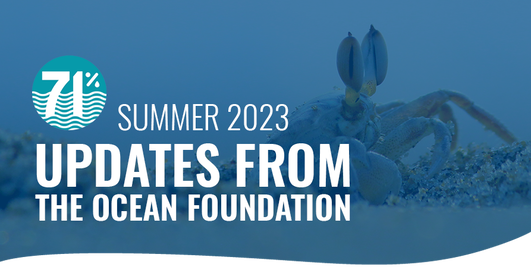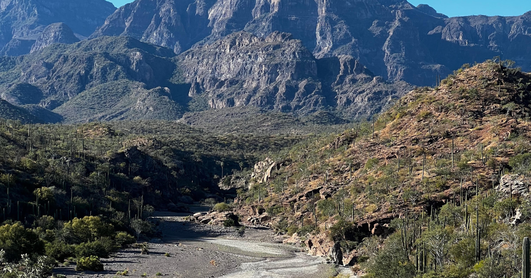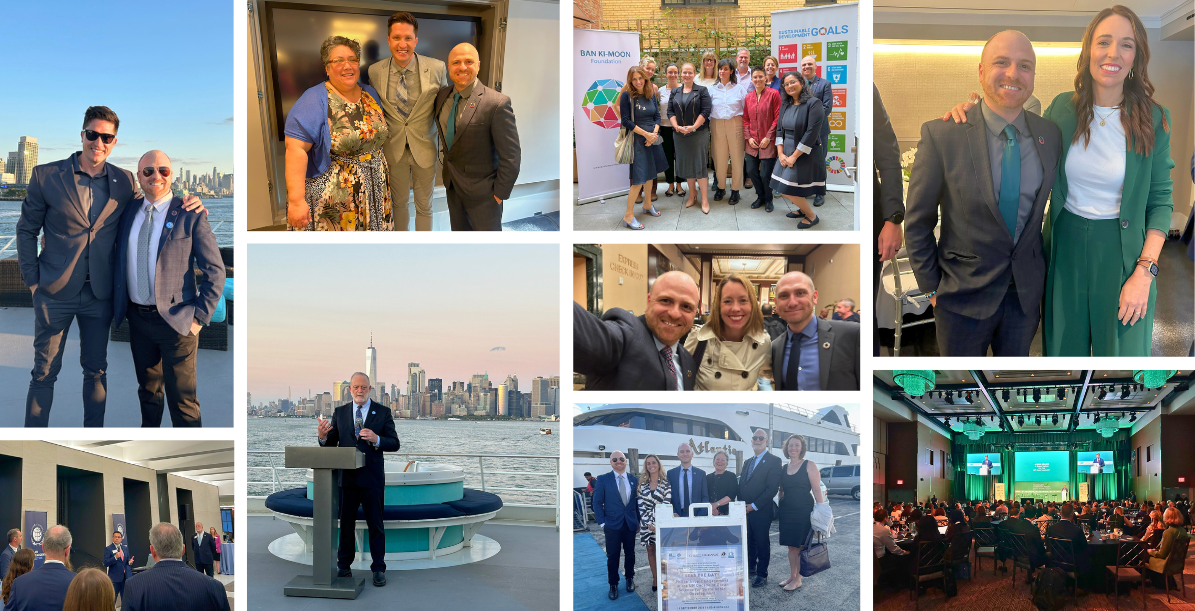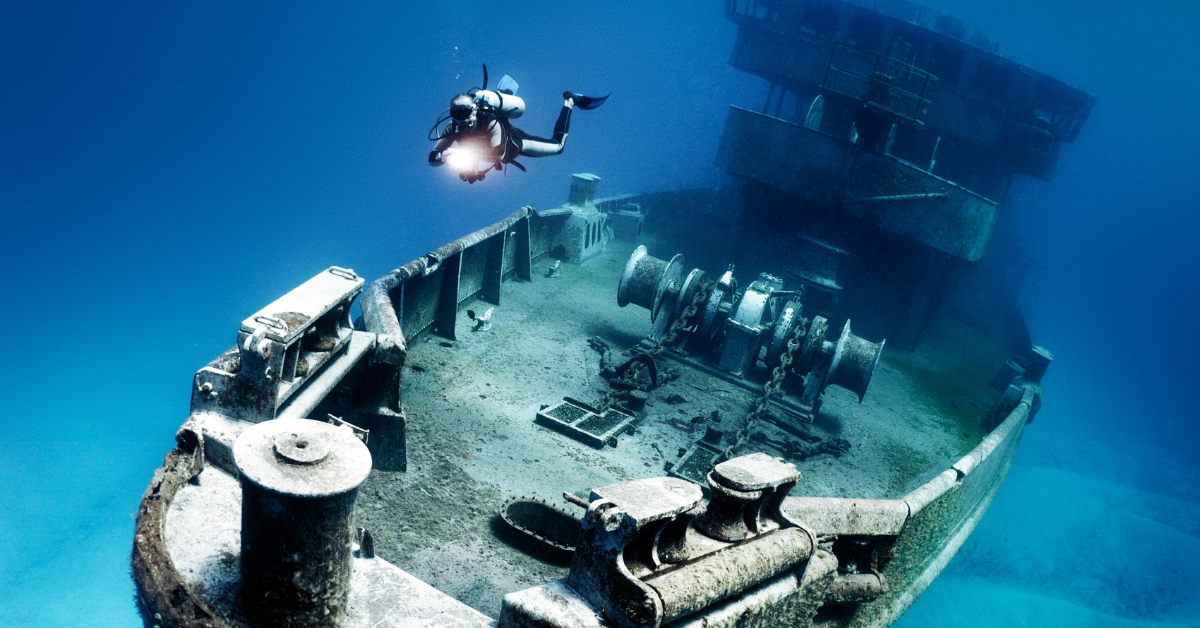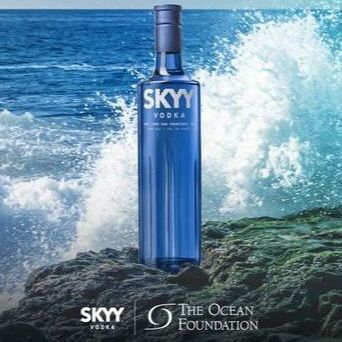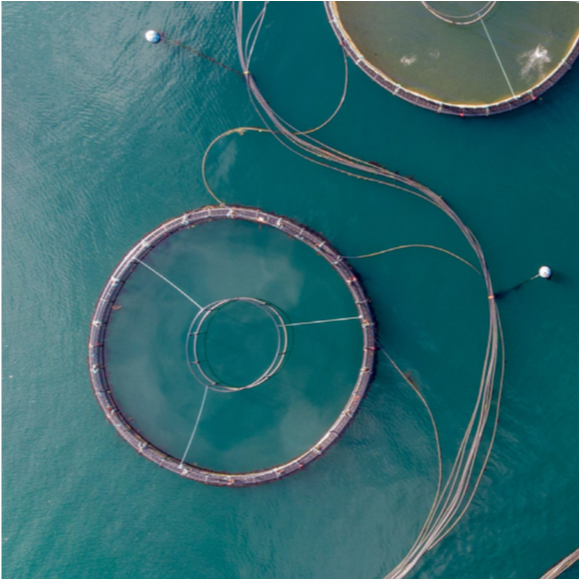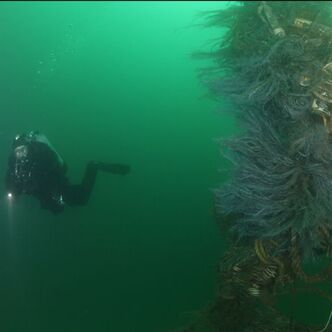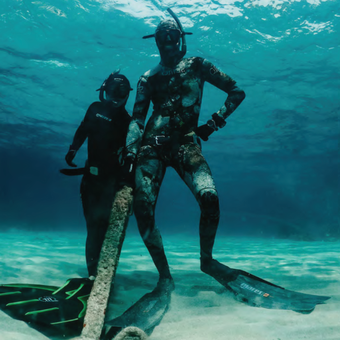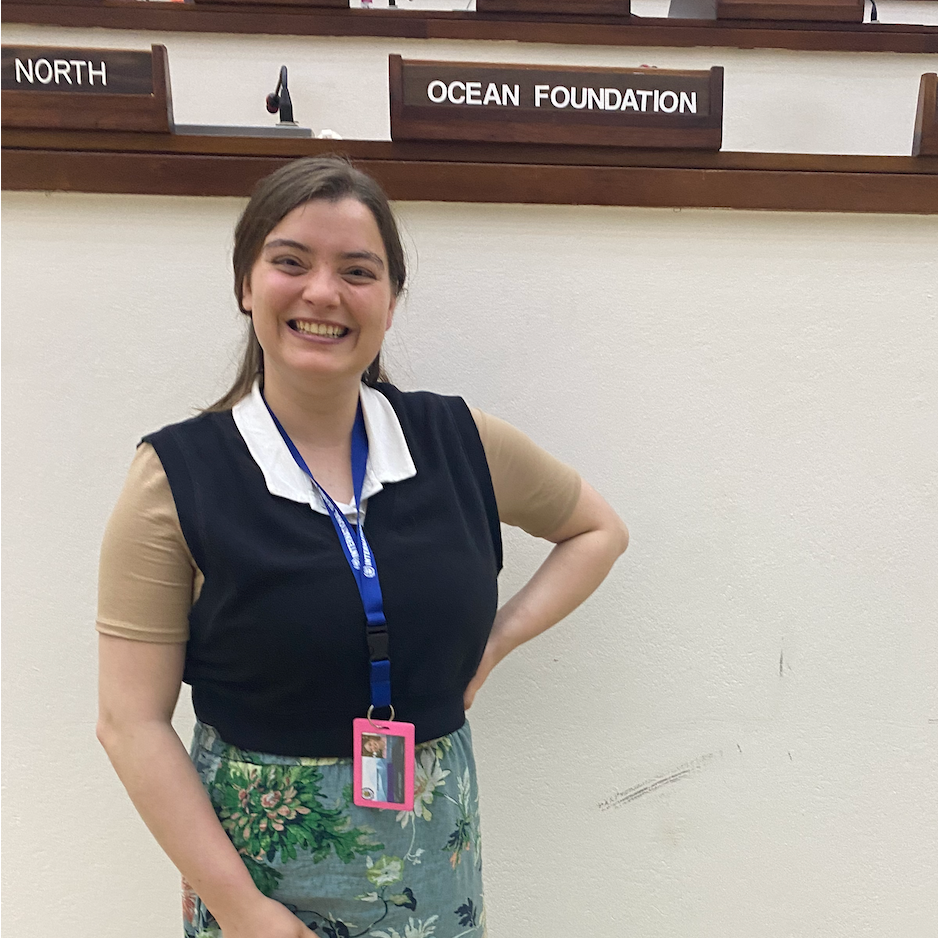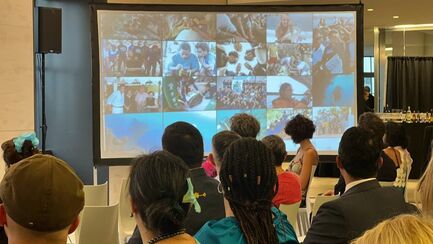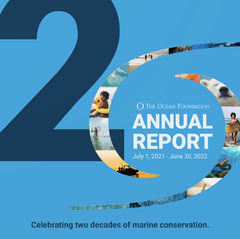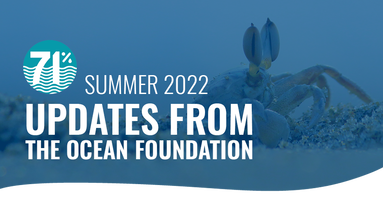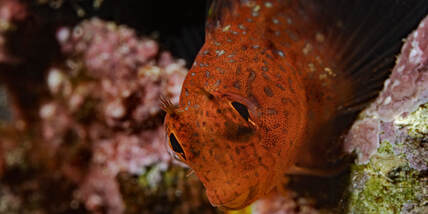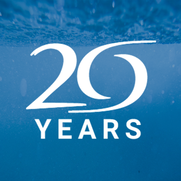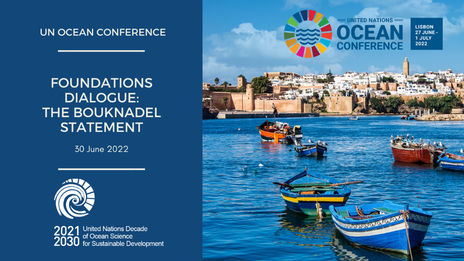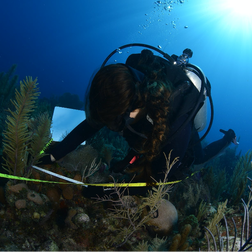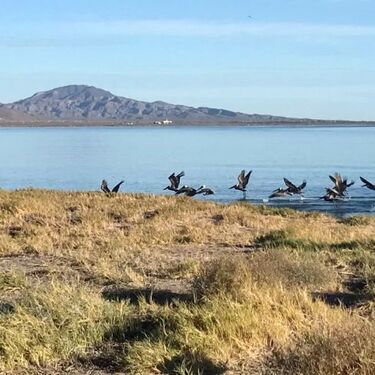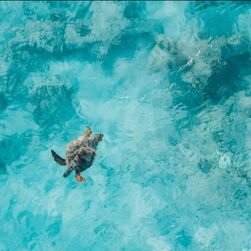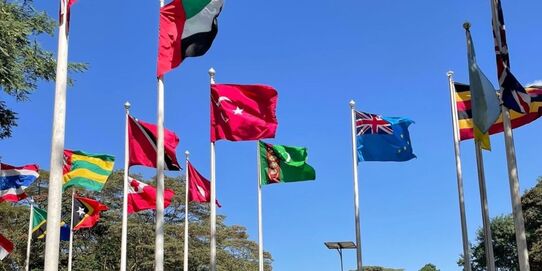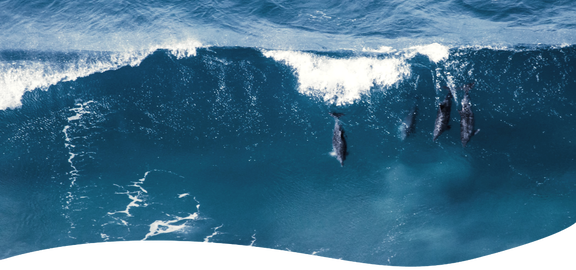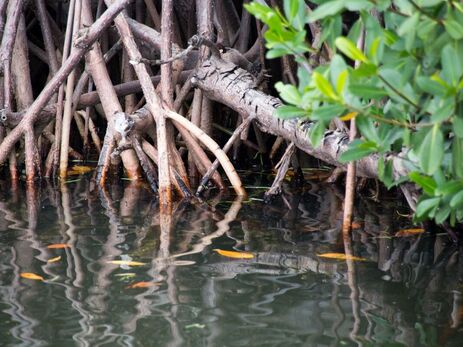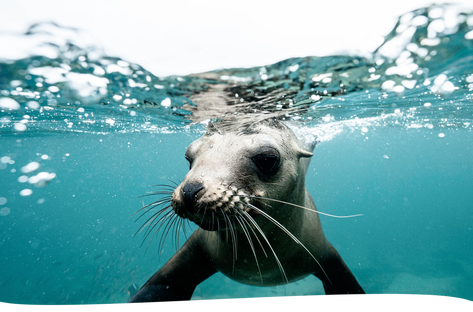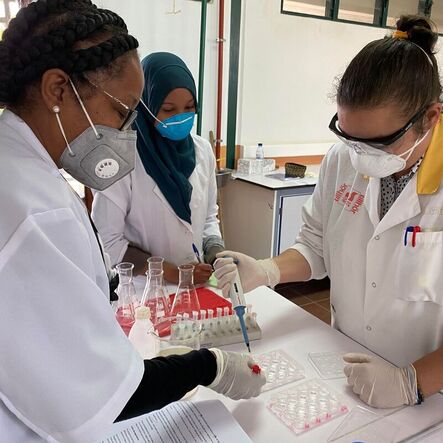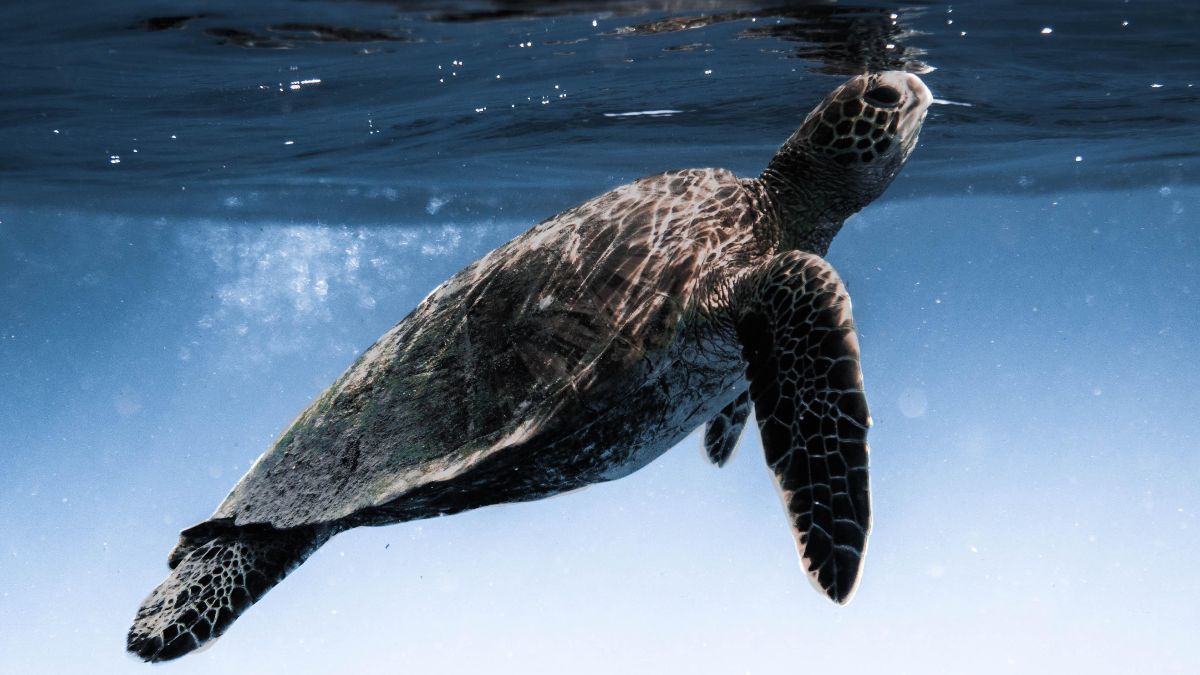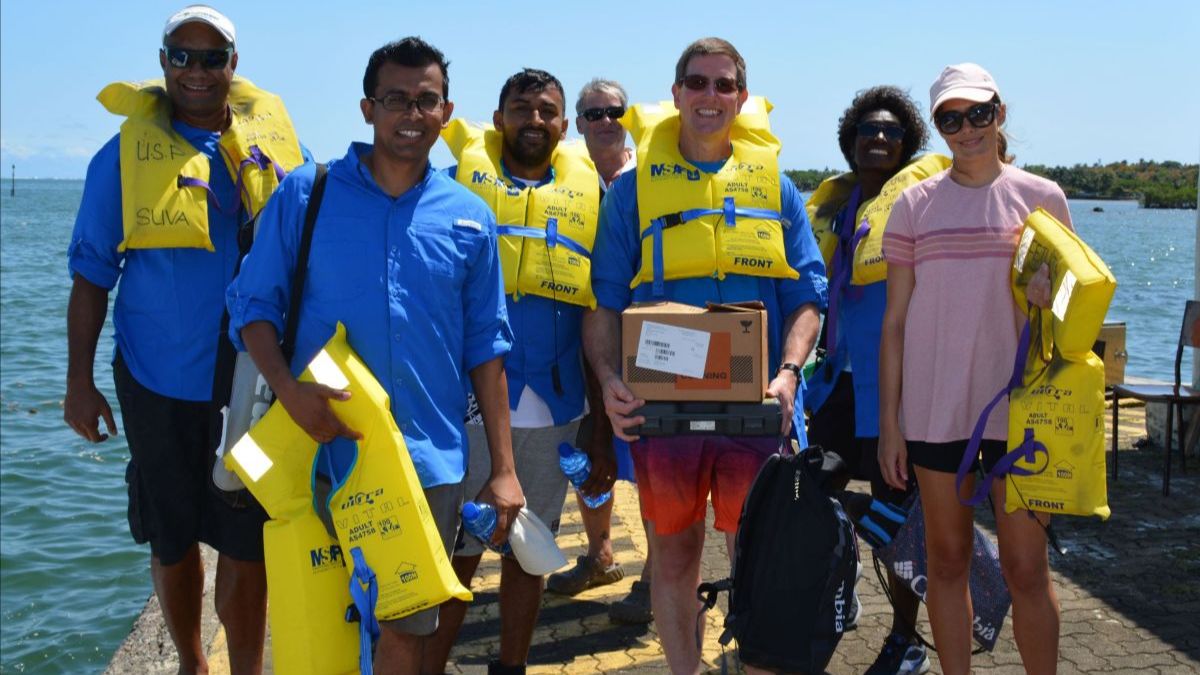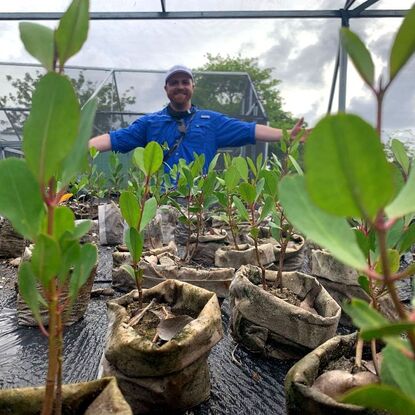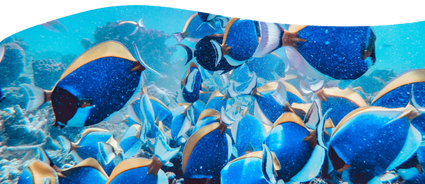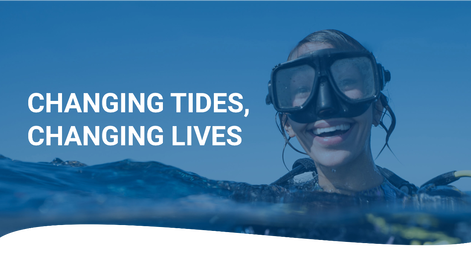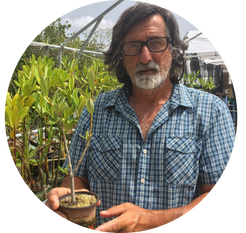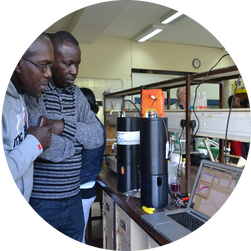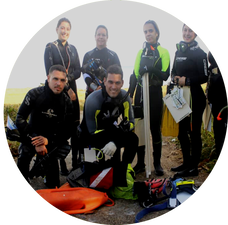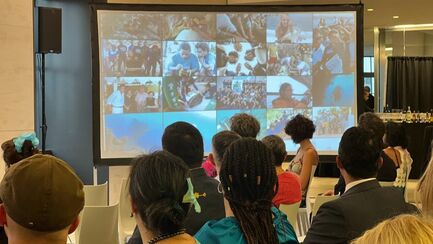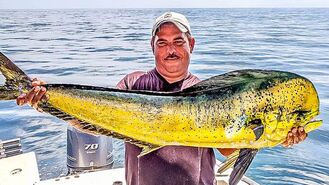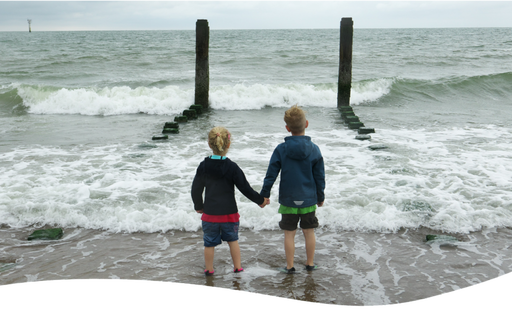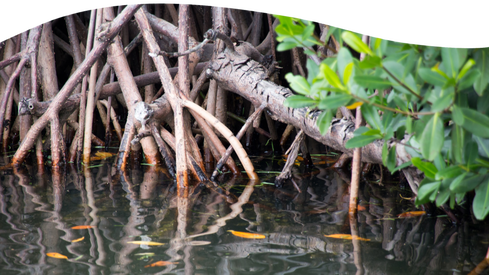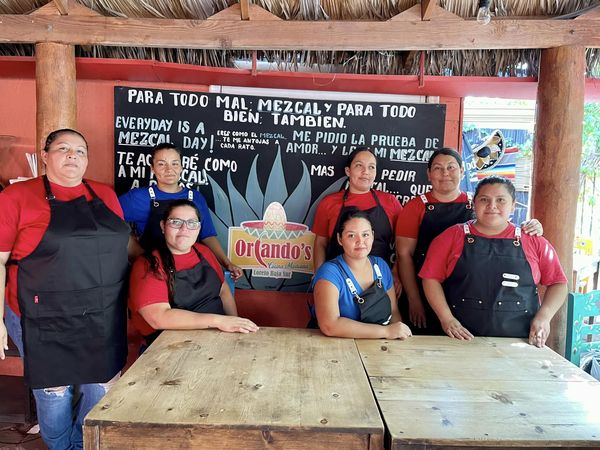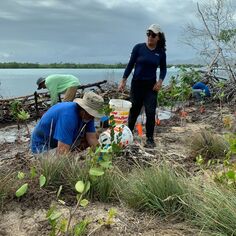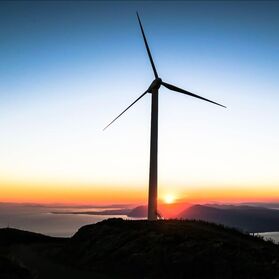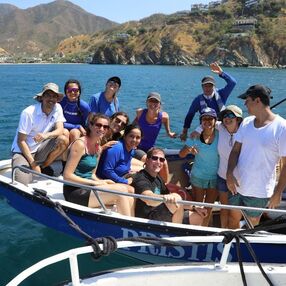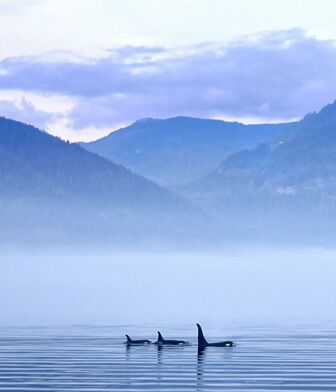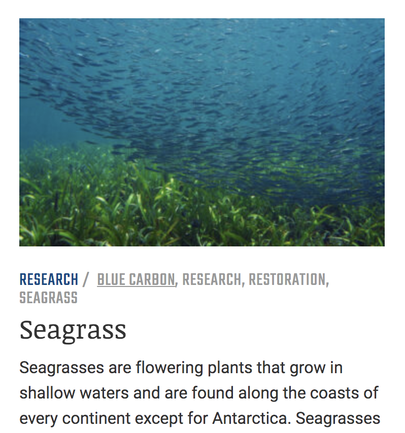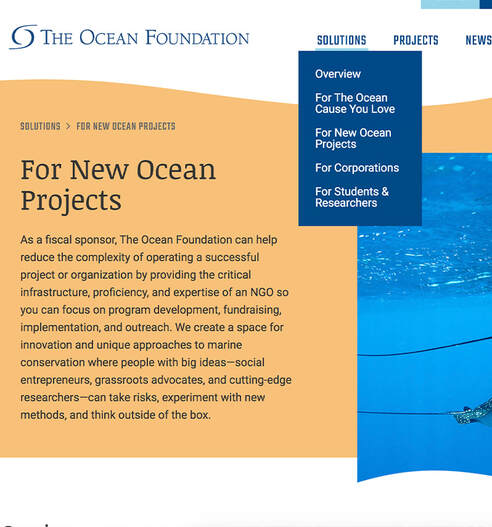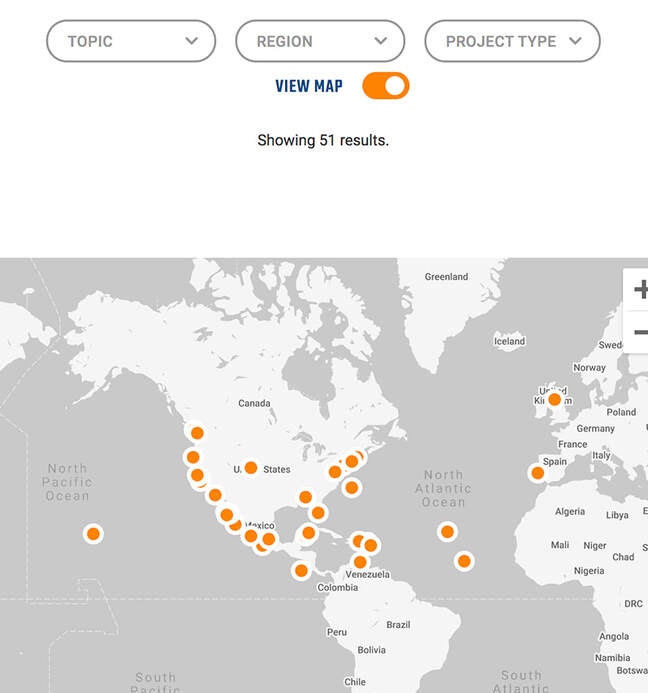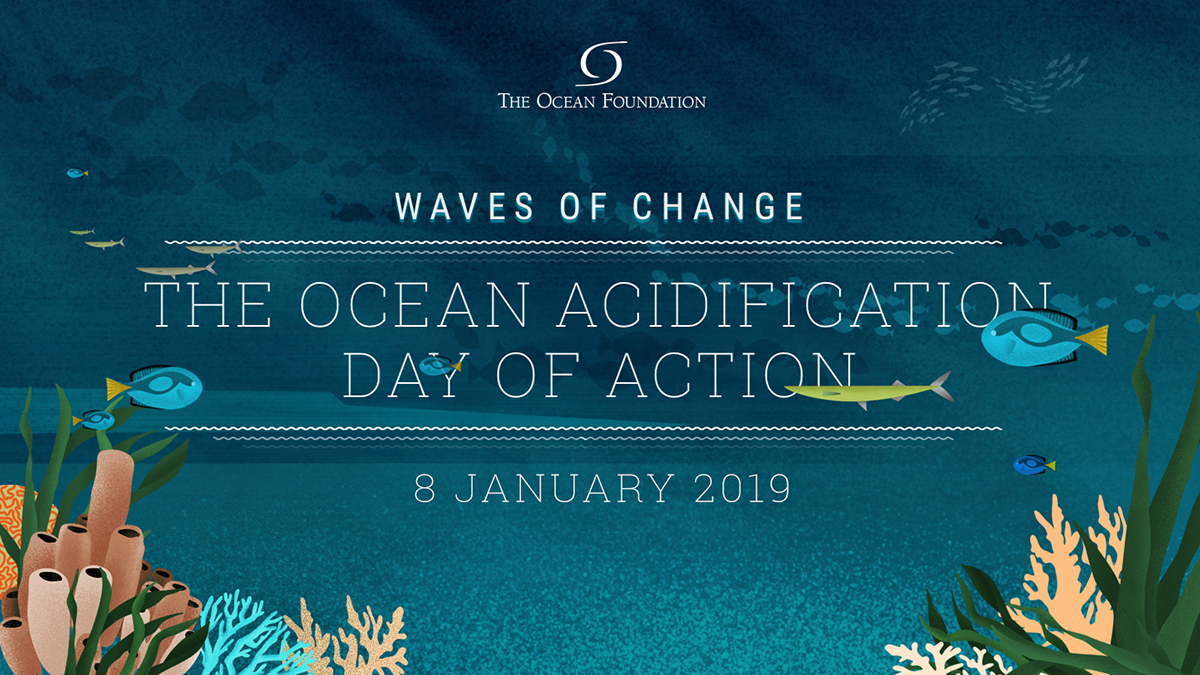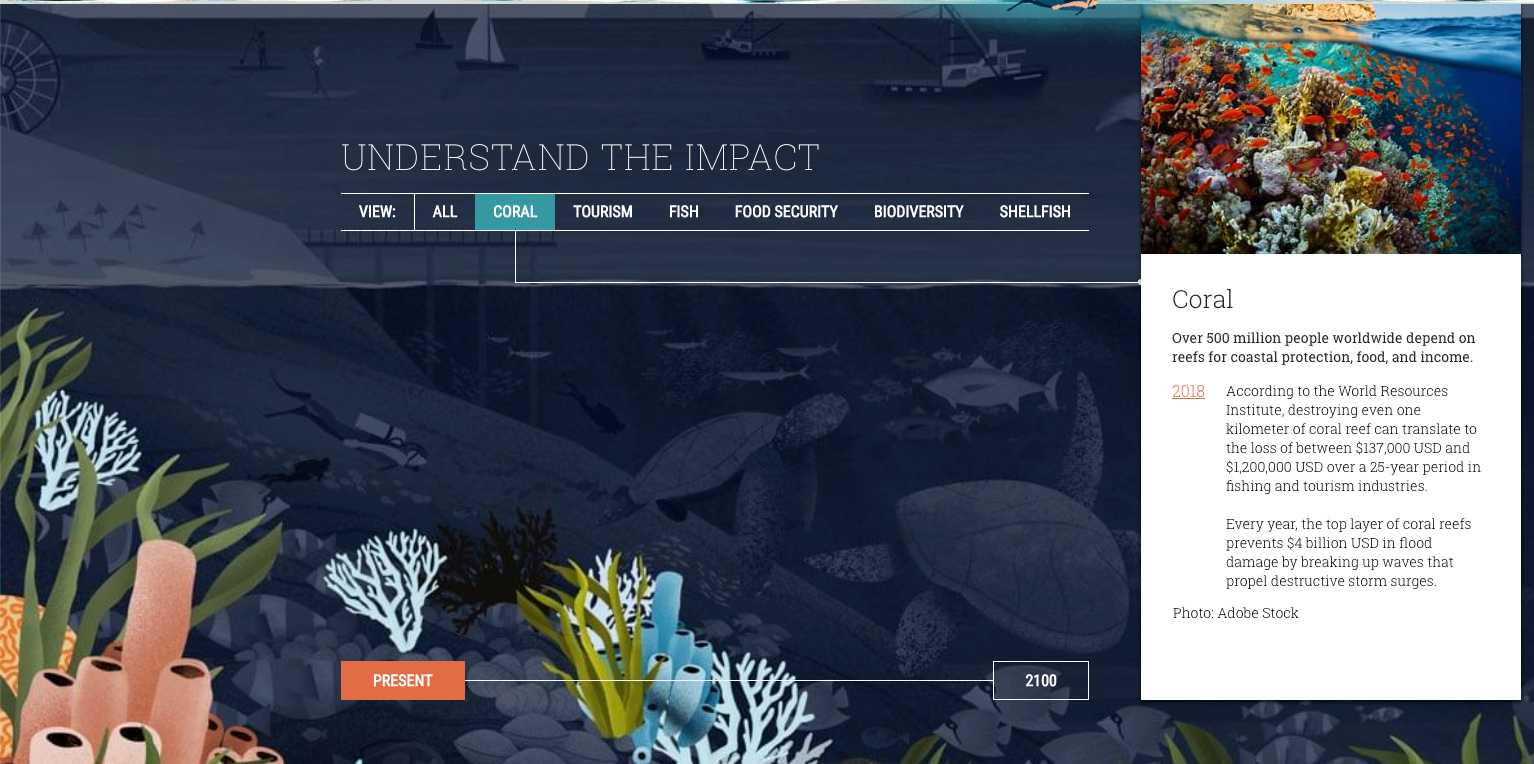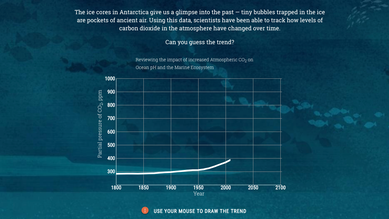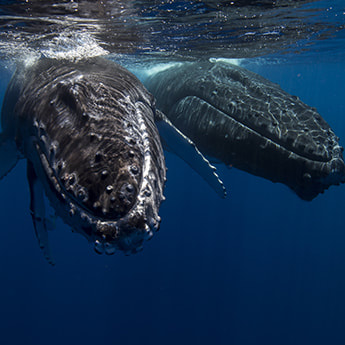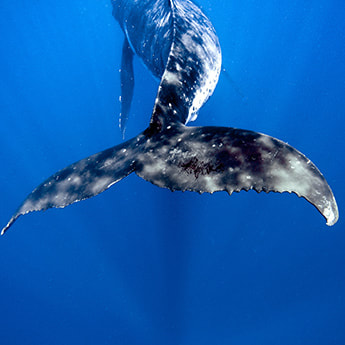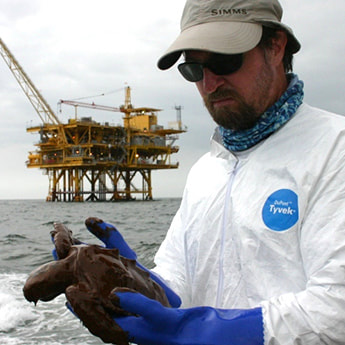ANNOUNCING PARK DESIGNATIONS
FOR NOPOLÓ AND LORETO II, BAJA CALIFORINA SUR, MEXICO
On August 16th 2023, Nopoló Park and Loreto II Park were set aside for conservation via two Presidential decrees to support sustainable development, ecotourism, and permanent habitat protection. The Ocean Foundation and its local partners have sought to protect this area through the establishment of these new parks: Nopoló Park and Loreto II. With continuing community support, we envision developing a healthy and vibrant park that is sustainably managed, protects local freshwater resources, and vitalizes community-based ecotourism initiatives. Ultimately, this park will strengthen the local ecotourism sector and promote sustainable development without sacrificing the natural resources that are essential to the well-being of current and future generations and serve as a successful model for other areas threatened by mass tourism.
Read More
FOR NOPOLÓ AND LORETO II, BAJA CALIFORINA SUR, MEXICO
On August 16th 2023, Nopoló Park and Loreto II Park were set aside for conservation via two Presidential decrees to support sustainable development, ecotourism, and permanent habitat protection. The Ocean Foundation and its local partners have sought to protect this area through the establishment of these new parks: Nopoló Park and Loreto II. With continuing community support, we envision developing a healthy and vibrant park that is sustainably managed, protects local freshwater resources, and vitalizes community-based ecotourism initiatives. Ultimately, this park will strengthen the local ecotourism sector and promote sustainable development without sacrificing the natural resources that are essential to the well-being of current and future generations and serve as a successful model for other areas threatened by mass tourism.
Read More
“The community has spoken. This park is important not only for nature, but also to the people of Loreto. It has been an honor to work with our partners over the past few years to achieve this milestone. But, our work to manage this incredible resource is only just beginning. We look forward to continuing to collaborate with the Keep Loreto Magical program and our local partners to expand access for local residents, build visitor facilities, develop trail infrastructure, and increase scientific monitoring capacity.”
MARK J. SPALDING
PRESIDENT, THE OCEAN FOUNDATION
MARK J. SPALDING
PRESIDENT, THE OCEAN FOUNDATION
Hitting the pavement and waterways at NY Climate Week:
In September, TOF staff were pleased to see the further inclusion of all things ocean across a variety of panels and receptions during NY Climate Week. We participated as a proud partner in the launch event for the End Plastic Pollution International Collaborative (#EPPIC_Plastics)- a $14.5 million USD, multiyear public-private partnership, hosted by IUCN with additional partners The Aspen Institute and Searious Business, and generously supported by the U.S. Department of State. TOF also co-hosted a very well-attended special event- Seas the Day- a philanthropic engagement in the UN Decade of Ocean Science for Sustainable Development, in partnership with IOC/UNESCO and the Elizabeth Fast Ferry. Additional engagement highlights included: UN Global Compact at Rockefeller Asset Management, the Sustainable Investment Forum, Ban-ki Moon Foundation and Confluence Philanthropy, as well as a suite of partner and Board of Directors meetings.
In September, TOF staff were pleased to see the further inclusion of all things ocean across a variety of panels and receptions during NY Climate Week. We participated as a proud partner in the launch event for the End Plastic Pollution International Collaborative (#EPPIC_Plastics)- a $14.5 million USD, multiyear public-private partnership, hosted by IUCN with additional partners The Aspen Institute and Searious Business, and generously supported by the U.S. Department of State. TOF also co-hosted a very well-attended special event- Seas the Day- a philanthropic engagement in the UN Decade of Ocean Science for Sustainable Development, in partnership with IOC/UNESCO and the Elizabeth Fast Ferry. Additional engagement highlights included: UN Global Compact at Rockefeller Asset Management, the Sustainable Investment Forum, Ban-ki Moon Foundation and Confluence Philanthropy, as well as a suite of partner and Board of Directors meetings.
New Accredited Observer status gives TOF a seat at the table for Underwater Cultural HeritageIn June, The Ocean Foundation (TOF) was approved as an Accredited NGO to UNESCO’s 2001 Convention on the Protection of Underwater Cultural Heritage (UCH). Administered by UNESCO — the United Nations Educational, Scientific and Cultural Organization — the Convention aims to assign a higher value to underwater cultural heritage, as the protection and preservation of historical relics allow for a better knowledge and appreciation of past culture, history and science. Understanding and conserving underwater cultural heritage, a particularly vulnerable heritage, also helps us understand climate change and rising sea levels.
As an Accredited NGO, The Ocean Foundation will officially participate in the work of the meetings as observers, without the right to vote. This allows us to more formally offer our international legal and technical expertise to the Scientific and Technical Advisory Body (STAB) and Member State Parties as they consider various measures to protect and preserve underwater cultural heritage. This achievement strengthens our overall ability to move forward with our ongoing work on UCH, as well as the specific relationship between UCH and potential deep seabed mining activities.
The new accreditation follows TOF’s similar relationships with other international fora, including the United Nations Environment Assembly (primarily for Global Plastics Treaty negotiations), and the Basel Convention on the Control of Transboundary Movements of Hazardous Wastes and Their Disposal. This announcement follows on the heels of the United States’ recent decision to rejoin UNESCO for July 2023, a step that we also applaud and are willing to support.
As an Accredited NGO, The Ocean Foundation will officially participate in the work of the meetings as observers, without the right to vote. This allows us to more formally offer our international legal and technical expertise to the Scientific and Technical Advisory Body (STAB) and Member State Parties as they consider various measures to protect and preserve underwater cultural heritage. This achievement strengthens our overall ability to move forward with our ongoing work on UCH, as well as the specific relationship between UCH and potential deep seabed mining activities.
The new accreditation follows TOF’s similar relationships with other international fora, including the United Nations Environment Assembly (primarily for Global Plastics Treaty negotiations), and the Basel Convention on the Control of Transboundary Movements of Hazardous Wastes and Their Disposal. This announcement follows on the heels of the United States’ recent decision to rejoin UNESCO for July 2023, a step that we also applaud and are willing to support.
SUPPORT THE
OCEAN FOUNDATION
Move our work forward by supporting the only community foundation for the ocean. Ensure the frontline communities we serve have the resources they need to reduce and respond to the growing effects of climate change.
Donate & Join Our WorkKEEP IN TOUCH
Receive new tailored to your interests by updating your email preferences.
Follow on Facebook
Follow on Twitter
Follow on Instagram
Follow in LinkedIn
OCEAN FOUNDATION
Move our work forward by supporting the only community foundation for the ocean. Ensure the frontline communities we serve have the resources they need to reduce and respond to the growing effects of climate change.
Donate & Join Our WorkKEEP IN TOUCH
Receive new tailored to your interests by updating your email preferences.
Follow on Facebook
Follow on Twitter
Follow on Instagram
Follow in LinkedIn
WHAT'S NEW:
IN CASE YOU MISSED IT
Collaborations and Partnerships:
IN CASE YOU MISSED IT
Collaborations and Partnerships:
|
SKYY® Vodka:
Protecting the Planet's Waterways This April, we announced an exciting multi-year partnership with SKYY® Vodka! The collaboration, inspired by both of our organizations’ beliefs that water matters, will help drive awareness and action toward conserving and restoring the ocean. SKYY will be donating to our newly created “For the Blue Fund”, and organizing numerous beach cleanups, educational workshops, and events alongside TOF in communities throughout the country. Read the Press Release Rockefeller Asset Management:
Critical Considerations for Seafood Traceability Revenue from the global seafood supply value chain is equivalent to 2% of the global GDP: That’s $1.8 trillion. And with this revenue, consumers and regulators have increasingly demanded an improved process for documenting all steps of a seafood product’s journey along the supply chain. TOF and our partners at Rockefeller Asset Management co-wrote a report in March exploring critical considerations when engaging corporations on seafood traceability. See the Report We’re so happy to share that our partners at Rockefeller Asset Management (RAM) were selected as a winner in the “ESG Investing (Product)” category for its Climate Solutions Strategy – at the Tenth Annual Family Wealth Report Awards. Congratulations to RAM and their Climate Solutions Strategy Portfolio Manager, Rolando F. Morillo, who also serves on our Board of Directors. Read More A Two-Year Partnership with Lloyd's Register Foundation
We’re excited to share a new, two-year partnership with independent global charity, the Lloyd's Register Foundation (LRF). LRF’s Heritage & Education Centre (HEC) focuses on maritime safety and what we can learn from the past to create a safer ocean economy for the future. We’ll work with LRF HEC to raise awareness about the significance of ocean heritage (both natural and cultural) and educate individuals on their rights and responsibilities to promote a sustainable ocean. View the Press Release |
Yachting Pages:
The State of Our Seas As part of the 20th anniversary of our partner, Yachting Pages, TOF participated in their March Mediterranean, Europe, Africa & Middle East 2023/24 edition to help shine a light on what various organizations are doing to help the ocean and our world. Within this edition, we spotlighted our own 20-year history of building capacity in various island communities – including Puerto Rico, Cuba, and the Dominican Republic. View the Article National Academies:
An Inclusive and Equitable Ocean On May 10, the National Academies of Sciences, Engineering, and Medicine kicked off a series of planning committee meetings to develop a workshop that will explore best practices for an inclusive and equitable ocean – the first foundational workshop from a recent report about U.S. contributions to the UN Ocean Decade. Among the workshop’s planning committee, we are proud to have our own Alexis Valauri-Orton representing TOF. We were also happy to see Russell F. Smith III on the committee, who serves on our Board. Learn More MAKING WAVES:
FACILITATING OCEAN SCIENCE DIPLOMACY WITH CUBAFebruary 28, 2023 marked a momentous milestone for ocean science diplomacy: The Government of Cuba and The Ocean Foundation signed a Memorandum of Understanding (MoU) – drawing on over 30 years of collaborative ocean science and policy work between TOF and Cuban marine research institutions and conservation agencies. READ THE PRESS RELEASE This collaboration, which is the first time the Government of Cuba has signed an MoU with a non-governmental organization in the United States, focuses primarily on the Gulf of Mexico and Western Caribbean – and among the three countries that border the Gulf: Cuba, Mexico, and the United States. Our MoU with Cuba is being executed by the Cuban Ministry for Science, Technology and Environment (CITMA), and states the need to protect the marine and coastal biological diversity shared by both countries. It covers the study of migratory species; connectivity between coral reef ecosystems; restoring and sequestering carbon dioxide in mangrove, seagrass, and wetland habitats; sustainable resources use; adaptation and mitigation of climate disruption; and finding new financing mechanisms for multilateral cooperation given a history of mutual adversity. The MoU also reinforces the study of shared U.S.-Cuban organisms and coastal habitats such as manatees, whales, corals, mangroves, seagrasses, wetlands, and sargassum. “This has been one of the few areas of academic and research exchange that has been sustained for decades, despite adverse political contexts. In a prominent way, The Ocean Foundation has played a decisive role in the establishment of authentic links of bilateral scientific cooperation, and created the basis to reach the agreements that exist today at the government level.” |
Ocean Governance:
|
A Task Force for Carbon Capture, Utilization, and Sequestration
On March 24, The White House announced the members of two new task forces that will help the Federal government responsibly and safely develop Carbon Capture, Utilization, and Sequestration practices. We’re incredibly proud of our president, Mark J. Spalding, who is a member of the first task force: Carbon Dioxide Capture, Utilization, and Sequestration Federal Lands and Outer Continental Shelf Permitting. Learn More |
Your TOF Debrief on the March ISA Meetings
Part I of the 28th Session of the International Seabed Authority (ISA) officially wrapped at the end of March, and our intern, Madeline Warner, was in Jamaica representing us during the meetings. We put together a recap with key moments – including discussions about deep seabed mining and Underwater Cultural Heritage, and a temperature check on a series of goals TOF put forth last year following the July 2022 meetings. Read the Blog Post |
More News: Tell Us Your Favorite Ocean Memories | An Introduction to Deep Seabed Mining | Scam Alert – Do Not Purchase Products from These Companies | Staff Memories with the Ocean, Whale Strandings and the Need for Long-Term Solutions | Making an Impact at IMPAC5
STATE OF THE OCEANI came to The Ocean Foundation with a strong sense of how communities can come together to solve problems.
I had worked for the San Diego Community Foundation, the International Community Foundation,
and the Alaska Conservation Foundation (a thematic community foundation).
The Ocean Foundation styles itself as a community foundation. Because we focus on global ocean health
and supporting the broad community of all of those who are working to protect and improve the ocean,
we too are a thematic community foundation.
What makes a community foundation special is the word “community”. We are neither a private nor a
government foundation. We do not have an endowment. Instead, we have a community, and that means each of you.
And, we need you more than ever. The threats to ocean health are well known. Changes in ocean chemistry,
depth, and temperature are affecting all of the systems on which life depends. Add in the pollutant soup
of microplastics, excess nutrients, and toxins and those challenges can seem too daunting to address—especially
when there’s insufficient political will to make the changes that need to be made.
Fortunately, our community remains dedicated to acting locally, nationally, regionally, and globally. The Ocean Foundation, our grantees, and our partners are solution focused. We share hope and optimism. From our work to restore blue carbon ecosystems to our emphasis on addressing the consequences of the deployment of ocean-based industrial activities, we are succeeding in putting a stop to the twin weaknesses of the human relationship with the ocean: Too much bad stuff going in, and too much good stuff coming out. And we continue to put equity and inclusive community building front and center, including through our Capacity Building work and our D.E.I.J. efforts. All of these activities need your support.
We have launched our CommYOUnity Foundation Campaign to ask each of you to tell us
what motivates you to care about the ocean.
We want to hear from you! What are your earliest saltwater memories? How did you fall in love with the coast?
The ocean? What do you care about? What do you see as solutions to ocean threats? Tell us here.
As always, I thank you for your support for our work. And I thank you again for being part of our community.
We look forward to hearing from you.
For the ocean,
Mark J. Spalding
President
I had worked for the San Diego Community Foundation, the International Community Foundation,
and the Alaska Conservation Foundation (a thematic community foundation).
The Ocean Foundation styles itself as a community foundation. Because we focus on global ocean health
and supporting the broad community of all of those who are working to protect and improve the ocean,
we too are a thematic community foundation.
What makes a community foundation special is the word “community”. We are neither a private nor a
government foundation. We do not have an endowment. Instead, we have a community, and that means each of you.
And, we need you more than ever. The threats to ocean health are well known. Changes in ocean chemistry,
depth, and temperature are affecting all of the systems on which life depends. Add in the pollutant soup
of microplastics, excess nutrients, and toxins and those challenges can seem too daunting to address—especially
when there’s insufficient political will to make the changes that need to be made.
Fortunately, our community remains dedicated to acting locally, nationally, regionally, and globally. The Ocean Foundation, our grantees, and our partners are solution focused. We share hope and optimism. From our work to restore blue carbon ecosystems to our emphasis on addressing the consequences of the deployment of ocean-based industrial activities, we are succeeding in putting a stop to the twin weaknesses of the human relationship with the ocean: Too much bad stuff going in, and too much good stuff coming out. And we continue to put equity and inclusive community building front and center, including through our Capacity Building work and our D.E.I.J. efforts. All of these activities need your support.
We have launched our CommYOUnity Foundation Campaign to ask each of you to tell us
what motivates you to care about the ocean.
We want to hear from you! What are your earliest saltwater memories? How did you fall in love with the coast?
The ocean? What do you care about? What do you see as solutions to ocean threats? Tell us here.
As always, I thank you for your support for our work. And I thank you again for being part of our community.
We look forward to hearing from you.
For the ocean,
Mark J. Spalding
President
WHAT'S NEW:
IN CASE YOU MISSED IT
Our Fiscal Year 2022 Annual Report is Here
This past November, we released our Fiscal Year 2022 annual report, highlighting our successes from July 1, 2021 to June 30, 2022. And, there were a lot of reasons to celebrate. As we keep pushing for big and small successes for the ocean, we know we couldn't have gotten this far without the support of our donors, partners, and projects.
Read the Report | Read the Recap Blog
Here's to Two Decades: Our 20th Anniversary Events
We were extremely grateful to host not one, but two events this past year to celebrate 20 years of ocean conservation work -- and prepare for the next 20 years of protecting the ocean in partnership with coastal communities around the world.
On September 21 in New York City, our first event was hosted by Rockefeller Asset Management, whom we have been lucky enough to partner with for the past ten years. Keynote remarks were provided by our President, Mark J. Spalding, representatives from Rockefeller, and members of our Board of Directors. Our partners at Roffé Accessories also donated Save the Ocean Apparel Co. gifts to help our guests remember the ocean long after our event.
On December 8, we gathered at the National Press Club in Washington, D.C. for our second celebration. Along with TOF Board Members, our incredible partners and projects, and the majority of our dedicated staff in attendance, we were also ecstatic to welcome guest speaker Maxine Burkett, Deputy Assistant Secretary for Oceans, Fisheries, and Polar Affairs, from the United States.
More News: Announcing the 2022 Boyd Lyon Scholar, Key Takeaways From Our Newest Annual Report, Climate Anxiety: The New Uncertainty Haunting Our Next Generation, Blue carbon will be the next frontier of carbon crediting, Marine Educator Needs Assessment: Summary Report, The Ocean Foundation and The New England Aquarium Partner with NEID
MAKING WAVES:
ENHANCING CORAL RESILIENCE IN THE TWO LARGEST COUNTRIES OF THE CARIBBEANOver the course of four days in February 2022, a group of experts from The Ocean Foundation, SECORE International, and the Dominican Foundation for Marine Science (FUNDEMAR) met in Bayahibe, Dominican Republic to transfer knowledge about Coral Seeding, scientifically known as larval propagation. This technique refers to the collection of coral spawn (coral eggs and sperm) that are then fertilized in a laboratory. The resulting larvae are settled on special substrates that are later outplanted on the reef without the need for mechanical attachment. Unlike traditional restoration methods like fragmentation, Coral Seeding fosters genetic diversity and has the capability to do that jump from small-scale projects to ecosystem-level restoration efforts. The film about this workshop was created by environmental filmmaker Vanessa Cara-Keer (Reef Patrol) and captures the essence of the learning exchange.
View the video in Spanish here: https://youtu.be/QGUYWtJHa9MThe workshop served as an important step in a larger plan for upscaling novel methods of coral restoration and enhancing coral reef ecosystems in the Dominican Republic. This exchange is intended as a south-south collaboration whereby two developing countries are sharing and growing together, deciding their own environmental future. Twenty-four participants from Cuba, the Dominican Republic, the United States, and Mexico attended presentations by SECORE and FUNDEMAR on their lessons learned with Coral Seeding in the Dominican Republic and across the Caribbean. The Cuban scientists already used their newly acquired knowledge to conduct full Coral Seeding trials for the first time ever in Cuba during two coral spawning events in August 2022.
The workshop was funded by a $1.9M grant from the Caribbean Biodiversity Fund Ecosystem-based Adaptation Facility. The project is a partnership between The Ocean Foundation, SECORE, and Cuban and Dominican partners to use nature-based solutions to help coastal communities of the two largest countries of the Caribbean adapt to climate change.
STATE OF THE OCEANThe Ocean Foundation is celebrating its 20th anniversary. Thus, we have been reflecting on how things changed in the last two decades. When TOF started, the founder was primarily concerned about tropical coral reefs in Southeast Asia and the Western Pacific. He focused on the preservation of their beauty and biodiversity from his perspective as a professional underwater photographer and conservationist, having seen firsthand the devastation created by the world’s first global coral bleaching event.
In 2023, TOF still cares about conservation of coral reefs. However, our understanding of the cumulating threats to those ecosystems (and others) has increased exponentially. We now all know more about human disruption of the climate, as well as about ocean acidification, and how these two phenomena affect the physics and chemistry of the ocean, and all life therein. And thus, the ecosystem services the ocean provides such as food and the air we breathe. We now know more about solutions. Sadly, we also now know more about how urgent adopting them has become.
This urgency means that the world needs multiple successes on multiple fronts if we are going to meet TOF’s mission to reverse the destruction of the world’s ocean. The good news is we have some from 2022. The US passed its most sweeping climate bill ever, COP27 took steps to financially address climate injustice, winning candidates in many nations campaigned on promises to address climate change, and the Kunming-Montreal Global Biodiversity Framework was adopted to protect nature at the scale needed to keep nature-based solutions to climate change intact. We are finally formally recognizing the linkage between plastic pollution and climate change. The international community will soon wrap up a new treaty on protecting ocean biodiversity beyond any nation’s jurisdiction (aka the high seas), and is already embarking on another treaty to end plastic pollution as we know it.
Looking ahead, TOF will continue to prioritize our efforts to be innovative and lead on integration of diversity, equity, inclusion, environmental justice, climate justice, and decolonization into all our work and that of our community.
We will use these tools to help our organization become more just, our society become more just, and our world become more just. This commitment augments and will continue to augment our work with more holistic and robust ideas and solutions to restore ocean health and abundance.
As noted in our FY22 Annual Report, TOF plans to foster more successes. Looking forward, TOF plans to increase our focus on Equitable Ocean Science Capacity, Ocean Science Diplomacy, and Supporting Island Communities. Likewise, we will continue to grow our climate resilience work through our Blue Resilience Initiative, and focus our sights on contributing to the negotiations to ensure the effectiveness of the treaty to address plastic pollution. And, we are building a new ocean literacy initiative.
TOF will grow our work on the blue economy and investing in ocean health together with Rockefeller Asset Management, the UNEP Sustainable Blue Economy Finance Initiative, the Commonwealth Blue Charter, and the High Level Panel for a Sustainable Ocean Economy.
And, TOF will spend some of our time working on the intersection between underwater cultural heritage and environmental conservation. And, we will continue to ramp up our work to debunk false claims about deep seabed mining, as well as the many mechanical and chemical climate or weather geoengineering technologies. The tricky thing about a silver bullet is that its use has consequences—and we must ensure that those consequences do not undermine the ocean’s health even more than human activities already have.
At the same time, TOF will continue to provide best-in-class philanthropic advisory services for ocean conservation, as well as for fiscal hosting of exciting and innovative projects.
TOF welcomes your continued support for our global ocean, for the amazing staff of TOF, and for the many dedicated people TOF supports to restore abundance and limit harm.
TOF has learned, changed, and grown over 20 years, and you have been there with us all the way. Thank you.
For the ocean,
Mark J. Spalding
President
SUPPORT THE
OCEAN FOUNDATION
Move our work forward by supporting the only community foundation for the ocean. Ensure the frontline communities we serve have the resources they need to reduce and respond to the growing effects of climate change.
Donate & Join Our Work KEEP IN TOUCH
Receive new tailored to your interests by updating your email preferences.
Follow on Facebook, Follow on Twitter, Follow on Instagram, Follow in LinkedIn
We will use these tools to help our organization become more just, our society become more just, and our world become more just. This commitment augments and will continue to augment our work with more holistic and robust ideas and solutions to restore ocean health and abundance.
As noted in our FY22 Annual Report, TOF plans to foster more successes. Looking forward, TOF plans to increase our focus on Equitable Ocean Science Capacity, Ocean Science Diplomacy, and Supporting Island Communities. Likewise, we will continue to grow our climate resilience work through our Blue Resilience Initiative, and focus our sights on contributing to the negotiations to ensure the effectiveness of the treaty to address plastic pollution. And, we are building a new ocean literacy initiative.
TOF will grow our work on the blue economy and investing in ocean health together with Rockefeller Asset Management, the UNEP Sustainable Blue Economy Finance Initiative, the Commonwealth Blue Charter, and the High Level Panel for a Sustainable Ocean Economy.
And, TOF will spend some of our time working on the intersection between underwater cultural heritage and environmental conservation. And, we will continue to ramp up our work to debunk false claims about deep seabed mining, as well as the many mechanical and chemical climate or weather geoengineering technologies. The tricky thing about a silver bullet is that its use has consequences—and we must ensure that those consequences do not undermine the ocean’s health even more than human activities already have.
At the same time, TOF will continue to provide best-in-class philanthropic advisory services for ocean conservation, as well as for fiscal hosting of exciting and innovative projects.
TOF welcomes your continued support for our global ocean, for the amazing staff of TOF, and for the many dedicated people TOF supports to restore abundance and limit harm.
TOF has learned, changed, and grown over 20 years, and you have been there with us all the way. Thank you.
For the ocean,
Mark J. Spalding
President
SUPPORT THE
OCEAN FOUNDATION
Move our work forward by supporting the only community foundation for the ocean. Ensure the frontline communities we serve have the resources they need to reduce and respond to the growing effects of climate change.
Donate & Join Our Work KEEP IN TOUCH
Receive new tailored to your interests by updating your email preferences.
Follow on Facebook, Follow on Twitter, Follow on Instagram, Follow in LinkedIn
WHAT'S NEW:
IN CASE YOU MISSED IT
Deep Seabed Mining
We’ve joined the Deep Sea Conservation Coalition (DSCC) to help provide the most accurate information about deep seabed mining. Our legal officer, Bobbi-Jo Dobush, and her intern, Madeline Warner, have been working to find and share the scientific, financial, and legal truths about the topic to keep the public well-informed.
IN CASE YOU MISSED IT
Deep Seabed Mining
We’ve joined the Deep Sea Conservation Coalition (DSCC) to help provide the most accurate information about deep seabed mining. Our legal officer, Bobbi-Jo Dobush, and her intern, Madeline Warner, have been working to find and share the scientific, financial, and legal truths about the topic to keep the public well-informed.
Learn More
Celebrating 20 Years of Ocean Conservation
We’re celebrating our 20th year anniversary as the only community foundation dedicated to the ocean. As we look back on our work over the last 20 years as a catalyst into the years to come, we’ll use this as inspiration for our newest annual report and during our Fall Climate Change campaign, #MakingWavesforClimate.
Celebrating 20 Years of Ocean Conservation
We’re celebrating our 20th year anniversary as the only community foundation dedicated to the ocean. As we look back on our work over the last 20 years as a catalyst into the years to come, we’ll use this as inspiration for our newest annual report and during our Fall Climate Change campaign, #MakingWavesforClimate.
Community Ocean Engagement Launch
We’re so excited to have launched our newest initiative, the Community Ocean Engagement Global Initiative (COEGI), this June on World Ocean Day. Our program officer, Frances Lang, is laying the groundwork as we move into the space of ocean literacy – promoting equitable access to marine education and careers in the field.
We’re so excited to have launched our newest initiative, the Community Ocean Engagement Global Initiative (COEGI), this June on World Ocean Day. Our program officer, Frances Lang, is laying the groundwork as we move into the space of ocean literacy – promoting equitable access to marine education and careers in the field.
View the Initiative
More News: Not My Father's Science, A New Generation of Coral Restoration, Saving Caribbean Sawfish, Working to Reduce Marine Debris, What the Ocean Means to Me, Our Commitment to Green 2.0’s Pay Equity Pledge, Building an Ocean-Minded Generation
More News: Not My Father's Science, A New Generation of Coral Restoration, Saving Caribbean Sawfish, Working to Reduce Marine Debris, What the Ocean Means to Me, Our Commitment to Green 2.0’s Pay Equity Pledge, Building an Ocean-Minded Generation
Check Out Our New Look!
We’ve been working to refresh our website to strategically bring our audiences and donors to the content you’ll find the most relevant.
View our “What We Do” section for more information about the topics we’re focusing on.
MAKING WAVES:
THE 2022 UNITED NATIONS OCEAN CONFERENCEWe were excited to attend the Ocean Decade Forum at the 2022 United Nations Ocean Conference in Lisbon this June, where a group of community, corporate, and private foundations joined together to discuss the future of ocean-conscious practices. Here, The Ocean Foundation joined 15 other philanthropic institutions from around the world to sign The Bouknadel Statement – which affirmed the commitment of members of the Foundations Dialogue of the UN Decade of Ocean Science for Sustainable Development (“The Ocean Decade”) to advance the future of sustainability and ocean conservation.
The Bouknadel Statement highlighted the goals of the Ocean Decade, including addressing the ocean’s impact on human health, safety, and wellbeing, as well as the gaps in access to ocean literacy that slow the progress of sustainable practices. The statement also targeted the need for co-design, co-delivery, and strong communication to increase widespread ocean knowledge. By building capacity in these channels, we can ultimately catalyze sustainable practices. The Ocean Decade members will use The Bouknadel Statement as a guide moving forward in the exploration of new and innovative tools, partnerships, and collaborations, and goals.
Read the Official Statement
At the United Nations Ocean Conference, we also participated in a wide range of side events highlighting topics such as blue carbon, coastal restoration, ocean acidification, and inequity in ocean science capacity. Our team was able to utilize our experiences and expertise from our initiatives to share our insights during these dialogues and panels. Our blog post touches on the diverse range of conversations we participated in at the event. We can’t wait to extend these conversations at the upcoming Mangrove Congress of America and UNFCCC COP27.
View our Recent Blog Post
STATE OF THE OCEANAs I write, my part of the country is experiencing a third year of significant drought conditions. Other places are burning or are flooding. Meanwhile, Dubai is using algorithms and drones to modify its weather by triggering thunderstorms. This action may have altered the rainfall for neighboring countries, depriving them of some needed water. If this turns out to be true, we are going to have to become very mindful that optimization of weather for one country (which can afford to do so) may harm other nations. The potential for weather modification to be used in a way that harms others is not a new idea. My graduate school mentor famously wrote about it in 1968. In other words, the nations who caused climate change (top emitting nations) may once again act in ways that cause harm to others.
In the U.S., our Congress appropriated funds and directed the White House Office of Science Technology Policy and NOAA to work toward developing a solar geoengineering research plan. We at The Ocean Foundation are in favor of research for the purpose of determining the efficacy of new technologies, even if controversial. And, in this case we are informed that Congress is concerned about unilateral weather modification globally, and it wishes for the U.S. Government to be prepared. We need to understand the science of Solar Radiation Modification (SRM) in order to make decisions and perhaps act defensively. Regardless, any decision to deploy this geoengineering technology will require that our elected leaders are very well-informed about consequences and that we consider these issues globally.
An international legal agreement is for later; once we know more. For now, let’s focus on knowing and understanding the potential effects of Solar Radiation Modification on the ocean. Simply stated, SRM concepts would create a veil in the stratosphere that would reflect the sun’s heat (radiation) back into space, thus cooling the planet. Cooling the planet sounds good given we are overheating it. However, it does NOT slow emissions or remove CO2 from the atmosphere, and thus will not address ocean acidification or any other air pollution consequences. In fact, one prominent concept calls for using aircraft to regularly and repeatedly inject sulfates into the lower stratosphere, which could increase acid deposition and damage the ozone layer.
And such deposition over the ocean basins would likely increase ocean acidification.
Solar Radiation Modification will change the way sunlight reaches plants—including plankton, algae, sea weeds, seagrasses, mangroves, and salt marsh estuaries. This in turn will have some effect on those plants photosynthesizing. Before SRM technologies are developed, tested, permitted, and deployed, we must understand what these activities will do to these natural systems’ uptakes of carbon, as well as production of oxygen. And, how it will affect the ocean’s food chain, the basis of life on earth.
We will also need to understand it so we can pursue international cooperation and coordination akin to the Montreal Protocol which addressed ozone depletion. An SRM treaty might help the globe to collectively, justly, and equitably stabilize the temperature aspect of climate change, or even dial the planet’s thermostat back to preindustrial conditions. Who gets to decide what the goal is? Whose hand is on the thermostat? And, what if there are incidental harms? Are those harmed entitled to compensation? And how do we ensure that we are safeguarding the systems in the ocean that generate our oxygen and support marine life?
A part of the intent in Congress’ direction to OSTP and to NOAA was to set standards for solar geoengineering research. I recently participated in a similar exercise regarding Ocean Carbon Dioxide Removal and contributed to a call for a Code of Conduct for such research that may serve as a model as we answer lingering scientific questions.
Regardless, let’s start by agreeing that we will not embrace any further industrialization of our planet, even in the name of solutions, without equally embracing the Precautionary Principle. Wealthy, high emissions nations must act to reduce emissions, pursue cost-effective known strategies, and thoroughly research the consequences of any new geoengineering technologies. After all, our ocean is in trouble because of the global failure to acknowledge that the ocean and all marine life are vulnerable to the effects of human activities.
For the ocean,
Mark J. Spalding
President
We’ve been working to refresh our website to strategically bring our audiences and donors to the content you’ll find the most relevant.
View our “What We Do” section for more information about the topics we’re focusing on.
MAKING WAVES:
THE 2022 UNITED NATIONS OCEAN CONFERENCEWe were excited to attend the Ocean Decade Forum at the 2022 United Nations Ocean Conference in Lisbon this June, where a group of community, corporate, and private foundations joined together to discuss the future of ocean-conscious practices. Here, The Ocean Foundation joined 15 other philanthropic institutions from around the world to sign The Bouknadel Statement – which affirmed the commitment of members of the Foundations Dialogue of the UN Decade of Ocean Science for Sustainable Development (“The Ocean Decade”) to advance the future of sustainability and ocean conservation.
The Bouknadel Statement highlighted the goals of the Ocean Decade, including addressing the ocean’s impact on human health, safety, and wellbeing, as well as the gaps in access to ocean literacy that slow the progress of sustainable practices. The statement also targeted the need for co-design, co-delivery, and strong communication to increase widespread ocean knowledge. By building capacity in these channels, we can ultimately catalyze sustainable practices. The Ocean Decade members will use The Bouknadel Statement as a guide moving forward in the exploration of new and innovative tools, partnerships, and collaborations, and goals.
Read the Official Statement
At the United Nations Ocean Conference, we also participated in a wide range of side events highlighting topics such as blue carbon, coastal restoration, ocean acidification, and inequity in ocean science capacity. Our team was able to utilize our experiences and expertise from our initiatives to share our insights during these dialogues and panels. Our blog post touches on the diverse range of conversations we participated in at the event. We can’t wait to extend these conversations at the upcoming Mangrove Congress of America and UNFCCC COP27.
View our Recent Blog Post
STATE OF THE OCEANAs I write, my part of the country is experiencing a third year of significant drought conditions. Other places are burning or are flooding. Meanwhile, Dubai is using algorithms and drones to modify its weather by triggering thunderstorms. This action may have altered the rainfall for neighboring countries, depriving them of some needed water. If this turns out to be true, we are going to have to become very mindful that optimization of weather for one country (which can afford to do so) may harm other nations. The potential for weather modification to be used in a way that harms others is not a new idea. My graduate school mentor famously wrote about it in 1968. In other words, the nations who caused climate change (top emitting nations) may once again act in ways that cause harm to others.
In the U.S., our Congress appropriated funds and directed the White House Office of Science Technology Policy and NOAA to work toward developing a solar geoengineering research plan. We at The Ocean Foundation are in favor of research for the purpose of determining the efficacy of new technologies, even if controversial. And, in this case we are informed that Congress is concerned about unilateral weather modification globally, and it wishes for the U.S. Government to be prepared. We need to understand the science of Solar Radiation Modification (SRM) in order to make decisions and perhaps act defensively. Regardless, any decision to deploy this geoengineering technology will require that our elected leaders are very well-informed about consequences and that we consider these issues globally.
An international legal agreement is for later; once we know more. For now, let’s focus on knowing and understanding the potential effects of Solar Radiation Modification on the ocean. Simply stated, SRM concepts would create a veil in the stratosphere that would reflect the sun’s heat (radiation) back into space, thus cooling the planet. Cooling the planet sounds good given we are overheating it. However, it does NOT slow emissions or remove CO2 from the atmosphere, and thus will not address ocean acidification or any other air pollution consequences. In fact, one prominent concept calls for using aircraft to regularly and repeatedly inject sulfates into the lower stratosphere, which could increase acid deposition and damage the ozone layer.
And such deposition over the ocean basins would likely increase ocean acidification.
Solar Radiation Modification will change the way sunlight reaches plants—including plankton, algae, sea weeds, seagrasses, mangroves, and salt marsh estuaries. This in turn will have some effect on those plants photosynthesizing. Before SRM technologies are developed, tested, permitted, and deployed, we must understand what these activities will do to these natural systems’ uptakes of carbon, as well as production of oxygen. And, how it will affect the ocean’s food chain, the basis of life on earth.
We will also need to understand it so we can pursue international cooperation and coordination akin to the Montreal Protocol which addressed ozone depletion. An SRM treaty might help the globe to collectively, justly, and equitably stabilize the temperature aspect of climate change, or even dial the planet’s thermostat back to preindustrial conditions. Who gets to decide what the goal is? Whose hand is on the thermostat? And, what if there are incidental harms? Are those harmed entitled to compensation? And how do we ensure that we are safeguarding the systems in the ocean that generate our oxygen and support marine life?
A part of the intent in Congress’ direction to OSTP and to NOAA was to set standards for solar geoengineering research. I recently participated in a similar exercise regarding Ocean Carbon Dioxide Removal and contributed to a call for a Code of Conduct for such research that may serve as a model as we answer lingering scientific questions.
Regardless, let’s start by agreeing that we will not embrace any further industrialization of our planet, even in the name of solutions, without equally embracing the Precautionary Principle. Wealthy, high emissions nations must act to reduce emissions, pursue cost-effective known strategies, and thoroughly research the consequences of any new geoengineering technologies. After all, our ocean is in trouble because of the global failure to acknowledge that the ocean and all marine life are vulnerable to the effects of human activities.
For the ocean,
Mark J. Spalding
President
Spring 2022 Updates from The Ocean Foundation
|
Against all Odds: Cuban Scientists' Two-Week Coral Reef Expedition
A team of marine biologists from the University of Havana pulled off a coral reef research expedition in December to Jardines de la Reina National Park, the largest marine protected area in the Caribbean. During a two-week span, scientists assessed the health status of a staggering 29,000 corals. Read about the expedition |
|
Loreto: Revisiting its Beauty, Heritage, and Community
In February, our president Mark J. Spalding took his first international trip on behalf of TOF in nearly 2 years to Loreto, BCS, Mexico – a place near and dear to our mission. During Mark’s visit, he checked in on our project Keep Loreto Magical and met with Loreto Bay National (marine) Park Director Rodolfo Palacios to discuss further opportunities to protect the region’s abundant marine life. View the blog |
|
"Come Together and Connect": Ocean Sciences Meeting 2022
COVID-19 has brought a plethora of uncertainty. This year’s Ocean Sciences Meeting was about coming together for common goals despite this unsettling time. As this was TOF’s first major ocean sciences meeting since March 2020, we were grateful to be a virtual panelist and share what NGOs are doing for the Ocean Decade. See our recap |
More News: Key Takeaways from Our #RememberTheOcean Campaign | The Humanitarian Response is the Healthy Ocean Response | U.S. Plastics Pact Publishes its “2020 Baseline Report” | How Common Threats to Shared Resources Can Overcome Politics | Plastic Materials Elimination List an Important Step in Reduction of Global Plastic Pollution
A Research Strategy for Ocean-Based Carbon Dioxide Removal
In December, The National Academies of Sciences, Engineering, and Medicine announced the release of its Ocean-Based Carbon Dioxide Removal report. We brought to bear our expertise on the matter, to make the report more accurate and to ensure that it would not be misused.
In December, The National Academies of Sciences, Engineering, and Medicine announced the release of its Ocean-Based Carbon Dioxide Removal report. We brought to bear our expertise on the matter, to make the report more accurate and to ensure that it would not be misused.
MAKING WAVES:
A MANDATE TO CURB PLASTIC POLLUTION
We are beyond ecstatic about the recent decision of Member States participating in the Fifth Session of the United Nations Environment Assembly (UNEA5): Member States officially agreed on a mandate calling for the beginning of negotiations on a global treaty to combat plastic pollution.
With our expertise and perspective on the plastic pollution crisis, TOF was on the ground in Nairobi at the United Nations’ headquarters to inform the treaty process. During UNEA5, we attended negotiation discussions and met with stakeholders from various sectors including industry, government, and NGOs.
For the last 20 years, we are proud to have been involved in international negotiations on ocean and climate issues. We understand that garnering agreement among governments, industry, and the environmental non-profit community takes years, and not all organizations are able to be in the right rooms. So, we take our accredited status very seriously – as an opportunity to be a voice for many who share our perspectives in the fight against plastic pollution.
TOF will continue to engage internationally in the coming months, to pursue policies that aim to stop the flow of plastic waste into the environment. For now, we’re taking this moment to celebrate the fact that governments have come to the agreement that plastic pollution is a threat to the health of our planet, its people, and its ecosystems – and it requires global action. We look forward to continuing to work with governments and stakeholders, and we hope to keep the momentum high for combating plastic pollution.
Read our statement
A MANDATE TO CURB PLASTIC POLLUTION
We are beyond ecstatic about the recent decision of Member States participating in the Fifth Session of the United Nations Environment Assembly (UNEA5): Member States officially agreed on a mandate calling for the beginning of negotiations on a global treaty to combat plastic pollution.
With our expertise and perspective on the plastic pollution crisis, TOF was on the ground in Nairobi at the United Nations’ headquarters to inform the treaty process. During UNEA5, we attended negotiation discussions and met with stakeholders from various sectors including industry, government, and NGOs.
For the last 20 years, we are proud to have been involved in international negotiations on ocean and climate issues. We understand that garnering agreement among governments, industry, and the environmental non-profit community takes years, and not all organizations are able to be in the right rooms. So, we take our accredited status very seriously – as an opportunity to be a voice for many who share our perspectives in the fight against plastic pollution.
TOF will continue to engage internationally in the coming months, to pursue policies that aim to stop the flow of plastic waste into the environment. For now, we’re taking this moment to celebrate the fact that governments have come to the agreement that plastic pollution is a threat to the health of our planet, its people, and its ecosystems – and it requires global action. We look forward to continuing to work with governments and stakeholders, and we hope to keep the momentum high for combating plastic pollution.
Read our statement
STATE OF THE OCEAN
As I write, the global pandemic is still affecting how and where we work. We remain concerned about our partners and grantees in some parts of Africa, Asia, Europe, and in Latin America and the Caribbean. The pandemic’s broader impacts include making it harder to prevent harm to the environment — weaker enforcement, more challenging monitoring and data collection, and fewer hands to do the work at every level.
These efforts are hampered even further by other challenges.
In 2021, the world experienced a record number of natural events that caused at least a billion U.S. dollars each in damages. Wildfires, flooding, violent storms, and drought are taking their toll on manmade and natural infrastructure. Millions of people were displaced. Communities of every size had to invest considerable resources just
to clean up and rebuild to the extent they could. Such overwhelming demand for emergency
response undermines the ability to plan and invest for the future too.
And now Russia has illegally invaded Ukraine, violating its sovereignty as a nation. We hope the Ukrainian resistance will inspire others, that countries will step up, and that we will see the tide turn in favor of democracy. In the meantime, Russia’s invasion and the consequences represent potential threats to economic recovery, another diversion of financial and human resources, and to the ability of nations to address climate change.
There has been some discussion lately about the best way to approach what is being called the “global polycrisis” or the "the sum total of all stressors affecting planetary health." Defending democracy, addressing inequity, and moving swiftly to address the root causes and effects of excess greenhouse gas emissions are among the top priorities in this discussion. We continue to believe that working inclusively means remaining aware of the broader, even global context in which everyone is living and that work is taking place.
I am pleased to let you know we have not slowed down, we have not given up, we are not backing down. The Ocean Foundation team and its partners are succeeding in its work to reverse the trend of destruction of ocean environments around the world. In other words, we are seeking to make the coasts and ocean healthy and abundant again. And, we are doing so for the benefit of all communities.
We align our work with the global Sustainable Development Goals that were championed by developing nations.
We are working on blue carbon ecosystems, aquaculture, ocean acidification, redesign of plastics,
and high seas marine protected areas.
We are engaging ocean-affecting companies to do better. And, when we do so, we are always asking if our effort will result in a sustainable blue economy, address climate change, and support vulnerable island and coastal communities, but most importantly, whether we will see greater justice and equity.
If there is going to be seabed mining, for example, we must remind those at the table that the benefits are not universal. It is the wealthy nations that can afford to dig up the seafloor and exploit it for the metals it might yield, and then in turn profit from processing and selling the resources. Often, it is those who are dependent on the ocean who bear the greatest burden of those operations — in the near and long term. It is the poorer communities who suffer the negative consequences to their water quality, food security, and their livelihoods in general. Prioritizing the most affected communities in allocating any benefits is the only equitable way forward.
And, when we speak about human disruption of the climate and work to address its consequences, we must acknowledge that the CO2 emissions that cause climate change come from richer and more developed nations. Yet the adverse effects of climate change are inequitable; causing the poorer peoples of Small Island Developing States (SIDS) and other low-emissions nations to suffer disproportionately. Likewise, the adaptation and mitigation measures
that can be adopted by the emitting nations are often out of reach for the rest of the world. We are proud
to be the fiscal host of the Climate Strong Islands Network, which allows islanders to stand strong together
at the frontlines of climate change and fight for our sustainable global future.
Our staff who participated in the Nairobi meeting about the new proposed international treaty to address plastic pollution found that too often, the most affected countries’ concerns were dismissed out of hand. As we tackle this global problem, we must identify and prevent harm to those who are affected throughout the process of extracting, processing, transforming, and finally disposing of the petrochemical-based plastics.
The Ocean Foundation remains committed to supporting positive change for the ocean, and for the people, plants, and animals that depend upon her health. And, we will continue our pursuit of fundamental fairness, equitable treatment, and justice in and beyond the communities where our partners and colleagues work and live.
Thank you for being part of our community and supporting our efforts. We cannot do it without you.
For the ocean,
Mark J. Spalding
President
As I write, the global pandemic is still affecting how and where we work. We remain concerned about our partners and grantees in some parts of Africa, Asia, Europe, and in Latin America and the Caribbean. The pandemic’s broader impacts include making it harder to prevent harm to the environment — weaker enforcement, more challenging monitoring and data collection, and fewer hands to do the work at every level.
These efforts are hampered even further by other challenges.
In 2021, the world experienced a record number of natural events that caused at least a billion U.S. dollars each in damages. Wildfires, flooding, violent storms, and drought are taking their toll on manmade and natural infrastructure. Millions of people were displaced. Communities of every size had to invest considerable resources just
to clean up and rebuild to the extent they could. Such overwhelming demand for emergency
response undermines the ability to plan and invest for the future too.
And now Russia has illegally invaded Ukraine, violating its sovereignty as a nation. We hope the Ukrainian resistance will inspire others, that countries will step up, and that we will see the tide turn in favor of democracy. In the meantime, Russia’s invasion and the consequences represent potential threats to economic recovery, another diversion of financial and human resources, and to the ability of nations to address climate change.
There has been some discussion lately about the best way to approach what is being called the “global polycrisis” or the "the sum total of all stressors affecting planetary health." Defending democracy, addressing inequity, and moving swiftly to address the root causes and effects of excess greenhouse gas emissions are among the top priorities in this discussion. We continue to believe that working inclusively means remaining aware of the broader, even global context in which everyone is living and that work is taking place.
I am pleased to let you know we have not slowed down, we have not given up, we are not backing down. The Ocean Foundation team and its partners are succeeding in its work to reverse the trend of destruction of ocean environments around the world. In other words, we are seeking to make the coasts and ocean healthy and abundant again. And, we are doing so for the benefit of all communities.
We align our work with the global Sustainable Development Goals that were championed by developing nations.
We are working on blue carbon ecosystems, aquaculture, ocean acidification, redesign of plastics,
and high seas marine protected areas.
We are engaging ocean-affecting companies to do better. And, when we do so, we are always asking if our effort will result in a sustainable blue economy, address climate change, and support vulnerable island and coastal communities, but most importantly, whether we will see greater justice and equity.
If there is going to be seabed mining, for example, we must remind those at the table that the benefits are not universal. It is the wealthy nations that can afford to dig up the seafloor and exploit it for the metals it might yield, and then in turn profit from processing and selling the resources. Often, it is those who are dependent on the ocean who bear the greatest burden of those operations — in the near and long term. It is the poorer communities who suffer the negative consequences to their water quality, food security, and their livelihoods in general. Prioritizing the most affected communities in allocating any benefits is the only equitable way forward.
And, when we speak about human disruption of the climate and work to address its consequences, we must acknowledge that the CO2 emissions that cause climate change come from richer and more developed nations. Yet the adverse effects of climate change are inequitable; causing the poorer peoples of Small Island Developing States (SIDS) and other low-emissions nations to suffer disproportionately. Likewise, the adaptation and mitigation measures
that can be adopted by the emitting nations are often out of reach for the rest of the world. We are proud
to be the fiscal host of the Climate Strong Islands Network, which allows islanders to stand strong together
at the frontlines of climate change and fight for our sustainable global future.
Our staff who participated in the Nairobi meeting about the new proposed international treaty to address plastic pollution found that too often, the most affected countries’ concerns were dismissed out of hand. As we tackle this global problem, we must identify and prevent harm to those who are affected throughout the process of extracting, processing, transforming, and finally disposing of the petrochemical-based plastics.
The Ocean Foundation remains committed to supporting positive change for the ocean, and for the people, plants, and animals that depend upon her health. And, we will continue our pursuit of fundamental fairness, equitable treatment, and justice in and beyond the communities where our partners and colleagues work and live.
Thank you for being part of our community and supporting our efforts. We cannot do it without you.
For the ocean,
Mark J. Spalding
President
Twenty years ago, The Ocean Foundation was born
out of the profound idea that successful ocean conservation is a community effort.
We have come a long way since then, moving over $74M towards reversing the trend of destruction of ocean environments around the world. And, as the only community foundation for the ocean, we couldn’t have done this without our incredible partners, donors, and staff.
This year, we're reflecting on our first two decades. We'll be celebrating our biggest successes
throughout the year, and are excited to loop you in on our highlights!
Putting the "Community" in "Community Foundation"
HOW WE BUILT PARTNERSHIPS IN THE D.R. AND ST. KITTSWe've been advancing carbon insetting technology in the Caribbean to help local farmers and relieve pressure on coastal ecosystems from harmful sargassum blooms. But, we couldn't have done this without harnessing the power of our incredible partners in the Dominican Republic and St. Kitts.
The Problem:
Sargassum is a type of natural algae that provides food, refuge, and breeding grounds for a multitude of marine life. While floating in the ocean, sargassum serves as an important habitat. But about ten years ago, it began washing up on Caribbean shores in harmful quantities. As it approaches the shore, sargassum smothers coral reefs, marine life, and seagrass beds and depletes oxygen levels. Once on shore, sargassum starts to decay – releasing noxious gasses and carbon back into the atmosphere, attracting pests, and hurting local tourism.
out of the profound idea that successful ocean conservation is a community effort.
We have come a long way since then, moving over $74M towards reversing the trend of destruction of ocean environments around the world. And, as the only community foundation for the ocean, we couldn’t have done this without our incredible partners, donors, and staff.
This year, we're reflecting on our first two decades. We'll be celebrating our biggest successes
throughout the year, and are excited to loop you in on our highlights!
Putting the "Community" in "Community Foundation"
HOW WE BUILT PARTNERSHIPS IN THE D.R. AND ST. KITTSWe've been advancing carbon insetting technology in the Caribbean to help local farmers and relieve pressure on coastal ecosystems from harmful sargassum blooms. But, we couldn't have done this without harnessing the power of our incredible partners in the Dominican Republic and St. Kitts.
The Problem:
Sargassum is a type of natural algae that provides food, refuge, and breeding grounds for a multitude of marine life. While floating in the ocean, sargassum serves as an important habitat. But about ten years ago, it began washing up on Caribbean shores in harmful quantities. As it approaches the shore, sargassum smothers coral reefs, marine life, and seagrass beds and depletes oxygen levels. Once on shore, sargassum starts to decay – releasing noxious gasses and carbon back into the atmosphere, attracting pests, and hurting local tourism.
Please SUPPORT THE OCEAN FOUNDATION
Move our work forward by supporting the only community foundation for the ocean. Ensure the frontline communities we serve have the resources they need to reduce and respond to the growing effects of climate change.
Donate & Join Our Work
KEEP IN TOUCH, Receive updates tailored to your interests by
updating your email preferences.
Follow on Facebook
Follow on Twitter
Follow on Instagram
Follow in LinkedIn
Move our work forward by supporting the only community foundation for the ocean. Ensure the frontline communities we serve have the resources they need to reduce and respond to the growing effects of climate change.
Donate & Join Our Work
KEEP IN TOUCH, Receive updates tailored to your interests by
updating your email preferences.
Follow on Facebook
Follow on Twitter
Follow on Instagram
Follow in LinkedIn
Copyright © 2022 The Ocean Foundation, All rights reserved.
To receiving an e-mail opted in at our website https://oceanfdn.org/subscribe/
Our mailing address is:
The Ocean Foundation
1320 19th St, NW
Suite 500
Washington, DC 20036-1610
Add us to your address book
To receiving an e-mail opted in at our website https://oceanfdn.org/subscribe/
Our mailing address is:
The Ocean Foundation
1320 19th St, NW
Suite 500
Washington, DC 20036-1610
Add us to your address book
THE OCEAN IS A CLIMATE SOLUTION
Despite our efforts to switch to solar power, compost our food waste, become energy efficient, offset our travel, and more: the effects of climate change have arrived. What now?
The ocean is capable of protecting us and mitigating the ramifications we are already experiencing, but we must invest in its health. In fact, there is no greater opportunity to protect the wellbeing of all communities than by focusing on ocean solutions.
Ocean-based climate action can play a major role in reducing the world’s carbon footprint, delivering up to 21% of the annual greenhouse gas emission reductions as pledged by the Paris Agreement. Now is the time to act in order to prevent the most harmful consequences of the climate crisis, and we must do so to the fullest extent of our abilities.
Despite our efforts to switch to solar power, compost our food waste, become energy efficient, offset our travel, and more: the effects of climate change have arrived. What now?
The ocean is capable of protecting us and mitigating the ramifications we are already experiencing, but we must invest in its health. In fact, there is no greater opportunity to protect the wellbeing of all communities than by focusing on ocean solutions.
Ocean-based climate action can play a major role in reducing the world’s carbon footprint, delivering up to 21% of the annual greenhouse gas emission reductions as pledged by the Paris Agreement. Now is the time to act in order to prevent the most harmful consequences of the climate crisis, and we must do so to the fullest extent of our abilities.
OUR BLUE OPPORTUNITIES
Restoring Coastlines
Restoring blue carbon-based ecosystems is key to climate resilience. Nature-based solutions through the restoration and conservation of critical blue carbon habitats like mangrove forests, seagrass beds, and salt marshes, and the implementation of seaweed-based regenerative agricultural practices, will sequester and store carbon in addition to mitigating flooding from increasing sea level rise.
Restoring Coastlines
Restoring blue carbon-based ecosystems is key to climate resilience. Nature-based solutions through the restoration and conservation of critical blue carbon habitats like mangrove forests, seagrass beds, and salt marshes, and the implementation of seaweed-based regenerative agricultural practices, will sequester and store carbon in addition to mitigating flooding from increasing sea level rise.
Marine Conservation
Maintaining a healthy ocean by conserving diverse habitats, coral reefs, healthy fisheries, and marine mammal populations allows the ocean to play the key role in the global carbon cycle, circulating and storing majority of our carbon emissions. Conservation of these ecosystems also benefits local economies based on coastal tourism.
Maintaining a healthy ocean by conserving diverse habitats, coral reefs, healthy fisheries, and marine mammal populations allows the ocean to play the key role in the global carbon cycle, circulating and storing majority of our carbon emissions. Conservation of these ecosystems also benefits local economies based on coastal tourism.
Building Capacity for Marine Science
Given that we have one interconnected global ocean, scientific monitoring and research needs to happen in all coastal communities — not just in the places that can afford it. Our International Ocean Acidification Initiative has trained 250+ scientists from more than 25 countries to monitor, understand, and respond to changes in ocean chemistry — a result of the ocean taking up almost 30% of the increased carbon emissions in our atmosphere — both locally and collaboratively on a global scale.
Given that we have one interconnected global ocean, scientific monitoring and research needs to happen in all coastal communities — not just in the places that can afford it. Our International Ocean Acidification Initiative has trained 250+ scientists from more than 25 countries to monitor, understand, and respond to changes in ocean chemistry — a result of the ocean taking up almost 30% of the increased carbon emissions in our atmosphere — both locally and collaboratively on a global scale.
Restoring ocean health and abundance is a winning, equitable strategy to mitigate the worst effects of climate change and support all ocean life—for the benefit of all humanity.
MARK J. SPALDING, PRESIDENT, THE OCEAN FOUNDATION MAKING OCEAN SOLUTIONS A REALITY
MARK J. SPALDING, PRESIDENT, THE OCEAN FOUNDATION MAKING OCEAN SOLUTIONS A REALITY
|
Policies that are pragmatic and science-informed make a profound difference for our ocean. Some ways The Ocean Foundation contributes has been by
|
Ocean Science Diplomacy facilitates global collaboration beyond political lines.
Since 2007, we’ve provided a nonpartisan platform so experts, scientists, and resources can come together through joint research projects and find shared solutions to the ocean’s problems. With the information developed through these relationships, scientists can educate decision makers about the state of changing coasts -- and encourage them to ultimately change policies. |
Funding is necessary to effect change. Marine science and conservation continues to be one of the most underfunded spaces by governments and foundations, historically receiving less than 7% of environmental grantmaking.
For nearly twenty years, we've bridged gaps in support by helping communities with the most need acquire sustained and multi-year funding. We deeply appreciate all that our supporters make possible for us to provide for conservation and research, like trainings for stakeholders, restoration projects with local partners, and policy guidance.
For nearly twenty years, we've bridged gaps in support by helping communities with the most need acquire sustained and multi-year funding. We deeply appreciate all that our supporters make possible for us to provide for conservation and research, like trainings for stakeholders, restoration projects with local partners, and policy guidance.
USE YOUR VOICE
Awareness for ocean solutions is key to manifesting the future we need. You can spread information about ocean-based climate solutions with our social media kit! Make a call to action for everyone to "Remember The Ocean" and applaud all who are helping turn science into solutions as we navigate the effects of climate change across the planet.
Download our Social Media Kit to #RememberTheOcean
Awareness for ocean solutions is key to manifesting the future we need. You can spread information about ocean-based climate solutions with our social media kit! Make a call to action for everyone to "Remember The Ocean" and applaud all who are helping turn science into solutions as we navigate the effects of climate change across the planet.
Download our Social Media Kit to #RememberTheOcean
The ocean brings so much beauty, adventure, and fun to our lives that we can easily forget that its central role is to sustain all life on earth. The ocean feeds us, produces the air we breathe, regulates our climate and lessens violent storms, enables economic sectors like tourism and transportation, and much, much more.
Yet, marine conservation and marine science have been one of the least funded spaces by philanthropy; historically, receiving less than 5% of environmental funding and less than 1% of total philanthropic funds.
Every dollar we raise funds ocean environments and changes lives across the ocean.
By making a gift to The Ocean Foundation, the only community foundation for the ocean, you will make sure our current initiatives go even further and reach more people, animals, and sea life.
Our new fiscal year begins on July 1st. We hope you will consider making a donation today so that we can plan best for the next 12 months of marine conservation.
Yet, marine conservation and marine science have been one of the least funded spaces by philanthropy; historically, receiving less than 5% of environmental funding and less than 1% of total philanthropic funds.
Every dollar we raise funds ocean environments and changes lives across the ocean.
By making a gift to The Ocean Foundation, the only community foundation for the ocean, you will make sure our current initiatives go even further and reach more people, animals, and sea life.
Our new fiscal year begins on July 1st. We hope you will consider making a donation today so that we can plan best for the next 12 months of marine conservation.
FUND THE OCEAN
WHAT WILL YOU MAKE POSSIBLE?
DONATE TODAY!
MORE ABOUT THE OCEAN FOUNDATION
View Our Annual Report KEEP IN TOUCH
Receive updates tailored to your interests by updating your email preferences.
Follow on Facebook Follow on Twitter Follow on Instagram Follow in LinkedIn
WHAT WILL YOU MAKE POSSIBLE?
DONATE TODAY!
MORE ABOUT THE OCEAN FOUNDATION
View Our Annual Report KEEP IN TOUCH
Receive updates tailored to your interests by updating your email preferences.
Follow on Facebook Follow on Twitter Follow on Instagram Follow in LinkedIn
NEWSLETTER FOR SPRING 2021
Teaming Up with NOAA to Advance Ocean Science
Ocean science needs to be conducted and accessible in order to restore our ocean and protect our communities against the effects of climate change. That's why we are joining our efforts with the National Oceanic and Atmospheric Administration to bolster data sharing and capacity for science on a global scale. This partnership will focus on international and national scientific efforts to advance research and conservation. Read the press release on oceanfdn.org.
Ocean science needs to be conducted and accessible in order to restore our ocean and protect our communities against the effects of climate change. That's why we are joining our efforts with the National Oceanic and Atmospheric Administration to bolster data sharing and capacity for science on a global scale. This partnership will focus on international and national scientific efforts to advance research and conservation. Read the press release on oceanfdn.org.
Studying Corals Reefs During the Pandemic
Our partners at the Center for Marine Research of the University of Havana have been surveying local coral reef ridges in order to eventually recommend management and conservation measures that will contribute to their future protection. We have been collaborating with CIM-UH for over two decades, despite the difficult diplomatic relations between Cuba and the US. We look forward to rejoining them in person post-pandemic!
Learn about their recent coral surveys.
Our partners at the Center for Marine Research of the University of Havana have been surveying local coral reef ridges in order to eventually recommend management and conservation measures that will contribute to their future protection. We have been collaborating with CIM-UH for over two decades, despite the difficult diplomatic relations between Cuba and the US. We look forward to rejoining them in person post-pandemic!
Learn about their recent coral surveys.
TOF Wide Conference
We held our Inaugural Virtual Conference to convene our large and diverse community of ocean conservationists: fiscally sponsored projects, staff, Board Members, and partners from around the world. As a community, we shared and identified challenges, successes, roadblocks, and solutions. As the only community foundation for the ocean, we are proud to host so many incredible and effective projects who work every day to protect and conserve our world ocean.
View our fiscally sponsored projects.
We held our Inaugural Virtual Conference to convene our large and diverse community of ocean conservationists: fiscally sponsored projects, staff, Board Members, and partners from around the world. As a community, we shared and identified challenges, successes, roadblocks, and solutions. As the only community foundation for the ocean, we are proud to host so many incredible and effective projects who work every day to protect and conserve our world ocean.
View our fiscally sponsored projects.
Protecting Antarctica's Southern Ocean with Pew Charitable Trusts
Since 2019, we have been a facilitator in Pew Charitable Trust's project to build support for marine protected areas in the Southern Ocean. The Southern Ocean encompasses 10% of the world ocean and is home to thousands of species, but climate change and industrial fishing threaten this fragile and important region. We are very proud to assist in this critical work and to support Pew Charitable Trust in their endeavors.
Read more on pewtrusts.org.
In Case You Missed It: Marine Science is Real Part One and Part Two • ECO Partnering with NOAA and The Ocean Foundation for Special Edition on Sea-Level Rise • Rockefeller Asset Management Launches Rockefeller Climate Solutions UCITS Driven by Nordic Region Institutional and Professional Investors • Presentation of the results: “Economic Valuation of the Ecosystem Services of the Mesoamerican Reef System” • The Ocean Climate Nexus • Diversity, Equity, Inclusion and Justice Efforts of 2020 • The Ocean Foundation Mobilizes International Organizations for the 3rd Annual Ocean Acidification Day of Action
Since 2019, we have been a facilitator in Pew Charitable Trust's project to build support for marine protected areas in the Southern Ocean. The Southern Ocean encompasses 10% of the world ocean and is home to thousands of species, but climate change and industrial fishing threaten this fragile and important region. We are very proud to assist in this critical work and to support Pew Charitable Trust in their endeavors.
Read more on pewtrusts.org.
In Case You Missed It: Marine Science is Real Part One and Part Two • ECO Partnering with NOAA and The Ocean Foundation for Special Edition on Sea-Level Rise • Rockefeller Asset Management Launches Rockefeller Climate Solutions UCITS Driven by Nordic Region Institutional and Professional Investors • Presentation of the results: “Economic Valuation of the Ecosystem Services of the Mesoamerican Reef System” • The Ocean Climate Nexus • Diversity, Equity, Inclusion and Justice Efforts of 2020 • The Ocean Foundation Mobilizes International Organizations for the 3rd Annual Ocean Acidification Day of Action
THE CLIMATE STRONG ISLANDS NETWORK
The Climate Strong Islands Declaration recently celebrated the one year anniversary of its signing, which officially formed The Climate Strong Islands Network, having first convened during Climate Week 2019 in New York City. "The Network" is a consortium of individuals and organizations, including NGOs, foundations, government agencies, from the Caribbean, the North Atlantic, and the Pacific. It is a key opportunity for island community ambassadors and stakeholders to share lessons and resources, as well as to work together to create lasting change. All members of The Network have the shared mission to identify the most pressing needs affecting these communities and the strategies that can be deployed to solve them.
The most recent gathering was held on March 11 to review the Network's 2021 priorities, which include developing a national policy agenda that advocates for effective legislative solutions to enhance coastal resiliency. Trigg Talley, Director of the Office of Global Change for the Bureau of Oceans and International Environmental and Scientific Affairs at the U.S. Department of State, also attended the meeting to talk about the importance of the U.S. rejoining the Paris Agreement.
The March 11 meeting also heard from the St. Croix Foundation for Community Development and the St. Croix Environmental Association on their local efforts to build resilience in their community. Through their work, St. Croix is developing a sustainable and holistic roadmap that calls upon energy experts, environmental justice advocates, and community leaders to convene and create a model that centers community and workforce towards a just energy transition.
The Network is an official chapter of the Global Island Partnership (GLISPA) and co-hosted by The Ocean Foundation. GLISPA is a partnership of over 40 members, led by the Presidents of Palau, Seychelles and the Republic of the Marshall Islands, Prime Minister of Grenada, and Premier of the British Virgin Islands.
Read the Climate Strong Islands Declaration
STATE OF THE OCEAN
Right now The Ocean Foundation is looking ahead to our third decade of work. One element of that work is our active engagement in the UN Decade of Ocean Science for Sustainable Development. Another is our work to help nations, especially small island nations, address ocean acidification and other ocean health issues while increasing their resilience in the face of changing ocean chemistry, temperature, and depth. As with the last two decades, the next ten years require us to remain flexible and opportunistic as we work to improve the human relationship with the ocean.
Part of that process is getting past the pandemic and adjusting to the changes that have occurred during this year of remote work for many in the ocean conservation field, like social distancing, and for some, heartbreaking loss and suffering borne in isolation.
Our staff have found ways to do a lot of our knowledge sharing and capacity building online. At the same time, not all locations are “connected equally” so it will take more work and investment to make virtual interactions even more equitable. Some of our staff and grantees involved in field work (planting seagrass, surveying coral reefs and such) are the most limited by pandemic travel restrictions. Much of that work can be, and has been, adapted to our new circumstances—but we are looking forward to when those folks can get their hands wet again.
Admittedly, on nearly every call these days I am being asked whether I “miss work travel” and “can’t wait to get back to normal” and return to my peripatetic life on the road. I answered the travel question in a blog a few months ago. I am lucky because I had years to build my network so it holds up virtually. Yet, I have also met new colleagues with whom I might never have crossed paths because it is far easier (and cheaper) for them to access Zoom than to get on an airplane. Logistics, finance, and even politics can impede full access to international gatherings in person.
One test will be in the planning of international meetings that can be crucial interactions for collaborative policy and science developments related to the future of the ocean. Inequity in vaccine distribution may limit in-person attendance. For example, there’s a protected areas meeting planned for September in Marseilles, a city that is readily accessible to many countries under normal circumstances. I had to point out that when attendance is limited to the vaccinated, the attendees will skew North American and European, so perhaps we should stay virtual for the time being so that all stakeholders can be involved at the same level (although I still worry about the extent of connectivity and time zone disadvantages for many parts of the world).
For one thing, we’ll get more input from a more diverse array of people, just as we have been for the last year. Virtual gatherings seem to have far more attendees, and they seem fully engaged despite the limitations of the screen. Good progress has been made. And, at the same time, we have to remember virtual meetings may not work well for the more difficult negotiations such as on how nations can reduce emissions using international carbon markets (Article 6 of the Paris Agreement) or how we might equitably protect the functions of the ocean by setting aside 30% as was recently suggested by a study published in the journal Nature.
Restoring abundance to the ocean means listening to those who have been most adversely affected by adverse human activities, and including them in creating solutions that benefit them, as well as ocean life. So, let’s learn from what we have been doing during the pandemic, make changes and do better.
Think. Learn. Change. Grow.
For the ocean,
Mark J. Spalding
President
The Climate Strong Islands Declaration recently celebrated the one year anniversary of its signing, which officially formed The Climate Strong Islands Network, having first convened during Climate Week 2019 in New York City. "The Network" is a consortium of individuals and organizations, including NGOs, foundations, government agencies, from the Caribbean, the North Atlantic, and the Pacific. It is a key opportunity for island community ambassadors and stakeholders to share lessons and resources, as well as to work together to create lasting change. All members of The Network have the shared mission to identify the most pressing needs affecting these communities and the strategies that can be deployed to solve them.
The most recent gathering was held on March 11 to review the Network's 2021 priorities, which include developing a national policy agenda that advocates for effective legislative solutions to enhance coastal resiliency. Trigg Talley, Director of the Office of Global Change for the Bureau of Oceans and International Environmental and Scientific Affairs at the U.S. Department of State, also attended the meeting to talk about the importance of the U.S. rejoining the Paris Agreement.
The March 11 meeting also heard from the St. Croix Foundation for Community Development and the St. Croix Environmental Association on their local efforts to build resilience in their community. Through their work, St. Croix is developing a sustainable and holistic roadmap that calls upon energy experts, environmental justice advocates, and community leaders to convene and create a model that centers community and workforce towards a just energy transition.
The Network is an official chapter of the Global Island Partnership (GLISPA) and co-hosted by The Ocean Foundation. GLISPA is a partnership of over 40 members, led by the Presidents of Palau, Seychelles and the Republic of the Marshall Islands, Prime Minister of Grenada, and Premier of the British Virgin Islands.
Read the Climate Strong Islands Declaration
STATE OF THE OCEAN
Right now The Ocean Foundation is looking ahead to our third decade of work. One element of that work is our active engagement in the UN Decade of Ocean Science for Sustainable Development. Another is our work to help nations, especially small island nations, address ocean acidification and other ocean health issues while increasing their resilience in the face of changing ocean chemistry, temperature, and depth. As with the last two decades, the next ten years require us to remain flexible and opportunistic as we work to improve the human relationship with the ocean.
Part of that process is getting past the pandemic and adjusting to the changes that have occurred during this year of remote work for many in the ocean conservation field, like social distancing, and for some, heartbreaking loss and suffering borne in isolation.
Our staff have found ways to do a lot of our knowledge sharing and capacity building online. At the same time, not all locations are “connected equally” so it will take more work and investment to make virtual interactions even more equitable. Some of our staff and grantees involved in field work (planting seagrass, surveying coral reefs and such) are the most limited by pandemic travel restrictions. Much of that work can be, and has been, adapted to our new circumstances—but we are looking forward to when those folks can get their hands wet again.
Admittedly, on nearly every call these days I am being asked whether I “miss work travel” and “can’t wait to get back to normal” and return to my peripatetic life on the road. I answered the travel question in a blog a few months ago. I am lucky because I had years to build my network so it holds up virtually. Yet, I have also met new colleagues with whom I might never have crossed paths because it is far easier (and cheaper) for them to access Zoom than to get on an airplane. Logistics, finance, and even politics can impede full access to international gatherings in person.
One test will be in the planning of international meetings that can be crucial interactions for collaborative policy and science developments related to the future of the ocean. Inequity in vaccine distribution may limit in-person attendance. For example, there’s a protected areas meeting planned for September in Marseilles, a city that is readily accessible to many countries under normal circumstances. I had to point out that when attendance is limited to the vaccinated, the attendees will skew North American and European, so perhaps we should stay virtual for the time being so that all stakeholders can be involved at the same level (although I still worry about the extent of connectivity and time zone disadvantages for many parts of the world).
For one thing, we’ll get more input from a more diverse array of people, just as we have been for the last year. Virtual gatherings seem to have far more attendees, and they seem fully engaged despite the limitations of the screen. Good progress has been made. And, at the same time, we have to remember virtual meetings may not work well for the more difficult negotiations such as on how nations can reduce emissions using international carbon markets (Article 6 of the Paris Agreement) or how we might equitably protect the functions of the ocean by setting aside 30% as was recently suggested by a study published in the journal Nature.
Restoring abundance to the ocean means listening to those who have been most adversely affected by adverse human activities, and including them in creating solutions that benefit them, as well as ocean life. So, let’s learn from what we have been doing during the pandemic, make changes and do better.
Think. Learn. Change. Grow.
For the ocean,
Mark J. Spalding
President
SUPPORT COASTS, REEFS, BAYS, AND PEOPLE
ear Richard,Our coastal ecosystems are extremely important. They prevent erosion and serve as a barrier to flooding and violent storm winds. Their biodiversity serves as an important food source, and they also effectively sequester and store carbon. As such, restoring and conserving coastal wetlands are one of our most promising strategies to directly combat climate change.
However, despite the benefits afforded by coastal ecosystems, habitats like seagrass meadows, mangrove forests, and salt marshes are in sharp decline. Furthermore, communities with the most to lose from environmental degradation and climate change are disproportionately affected by both, despite contributing the least to these problems.
We do everything we can to assist local partners in their restoration and conservation efforts. By recognizing these communities on a global stage and enhancing their capabilities through workshops, trainings, and direct funding, our work begins to dismantle environmental injustice that has undermined conservation efforts for decades.
Today, we ask for your generosity towards this vital work. As we turn to the mangroves and bioluminescence of Mosquito Bay, Puerto Rico; the corals, turtles, and fish through the coasts of Belize, Guatemala, and Honduras; and restoring coastlines through our SeaGrass Grow program, we need your support to make lasting progress for mother ocean.
For the ocean,
Mark J. Spalding
President
Donate & Join Our WorkA CLOSER LOOK AT THE BIOLUMINESCENT BAY
On the island of Vieques, Puerto Rico, Mosquito Bay serves as a key environmental, economic, and cultural resource for its surrounding communities. It is considered the “brightest bioluminescent bay in the world” due to its ideal environmental conditions.
During Hurricane Maria in 2017, an extensive amount of protective mangroves and seagrasses were destroyed, leaving large areas prone to ongoing erosion. Experts believe the resiliency of this unique ecosystem will be increasingly challenged by climate change, bringing more frequent and powerful storm events. In particular, resource managers have raised serious concerns about extensive habitat destruction and potentially the permanent loss of its bioluminescence.
This partnership and project, entailing large-scale restoration work of about 47 acres, can reverse this trend of destruction to Bioluminescent Bay. We are able to extend our expertise and resources to local partners and save this cherished environment.
“ In spite of the importance of the mangroves, after decades of enduring hurricanes, we are developing, for the first time, a systematic restoration effort thanks to the support of The Ocean Foundation. We are grateful to collaborate with The Ocean Foundation so that the Bay and
this ecosystem can protect and benefit our local area
for years to come. ”
LIRIO MARQUEZ
VIEQUES CONSERVATION AND HISTORICAL TRUST
Your support makes such a difference for leaders like Lirio because our objective is for all communities to be their own best line of defense while protecting their health, local economies, food productivity, infrastructure, and ecosystem services. We hope that you will contribute and make it possible for more communities to join our mission to reverse the trend of destruction on the ocean - especially as we all work to meet our environmental goals in this difficult time.
Learn More About Our Goals
However, despite the benefits afforded by coastal ecosystems, habitats like seagrass meadows, mangrove forests, and salt marshes are in sharp decline. Furthermore, communities with the most to lose from environmental degradation and climate change are disproportionately affected by both, despite contributing the least to these problems.
We do everything we can to assist local partners in their restoration and conservation efforts. By recognizing these communities on a global stage and enhancing their capabilities through workshops, trainings, and direct funding, our work begins to dismantle environmental injustice that has undermined conservation efforts for decades.
Today, we ask for your generosity towards this vital work. As we turn to the mangroves and bioluminescence of Mosquito Bay, Puerto Rico; the corals, turtles, and fish through the coasts of Belize, Guatemala, and Honduras; and restoring coastlines through our SeaGrass Grow program, we need your support to make lasting progress for mother ocean.
For the ocean,
Mark J. Spalding
President
Donate & Join Our WorkA CLOSER LOOK AT THE BIOLUMINESCENT BAY
On the island of Vieques, Puerto Rico, Mosquito Bay serves as a key environmental, economic, and cultural resource for its surrounding communities. It is considered the “brightest bioluminescent bay in the world” due to its ideal environmental conditions.
During Hurricane Maria in 2017, an extensive amount of protective mangroves and seagrasses were destroyed, leaving large areas prone to ongoing erosion. Experts believe the resiliency of this unique ecosystem will be increasingly challenged by climate change, bringing more frequent and powerful storm events. In particular, resource managers have raised serious concerns about extensive habitat destruction and potentially the permanent loss of its bioluminescence.
This partnership and project, entailing large-scale restoration work of about 47 acres, can reverse this trend of destruction to Bioluminescent Bay. We are able to extend our expertise and resources to local partners and save this cherished environment.
“ In spite of the importance of the mangroves, after decades of enduring hurricanes, we are developing, for the first time, a systematic restoration effort thanks to the support of The Ocean Foundation. We are grateful to collaborate with The Ocean Foundation so that the Bay and
this ecosystem can protect and benefit our local area
for years to come. ”
LIRIO MARQUEZ
VIEQUES CONSERVATION AND HISTORICAL TRUST
Your support makes such a difference for leaders like Lirio because our objective is for all communities to be their own best line of defense while protecting their health, local economies, food productivity, infrastructure, and ecosystem services. We hope that you will contribute and make it possible for more communities to join our mission to reverse the trend of destruction on the ocean - especially as we all work to meet our environmental goals in this difficult time.
Learn More About Our Goals
SUPPORT THE
OCEAN FOUNDATION
Move our work forward with anything you have to offer, and ensure we can serve those who need it most.
Donate & Join Our WorkKEEP IN TOUCH
Follow on Facebook
Follow on Twitter
Follow on Instagram
Follow in LinkedIn
OCEAN FOUNDATION
Move our work forward with anything you have to offer, and ensure we can serve those who need it most.
Donate & Join Our WorkKEEP IN TOUCH
Follow on Facebook
Follow on Twitter
Follow on Instagram
Follow in LinkedIn
|
What to Know About the Ocean & COVID-19
The global response to COVID-19 has allowed a significant pause in global economic activity, resulting in much lower carbon emissions. We know this dramatically improved air quality, but what does it mean for the ocean? These past few months, and the weeks and months ahead, offer a learning opportunity to chart a path that is proactive rather than reactive. During these unprecedented times, we have uncovered a lot about ourselves and our environment. To learn more about the ocean and how we can respond to the pandemic for the betterment of our planet, read the new blog from Mark J. Spalding, President. "Let us all use the lessons we are learning together as an opportunity for us to put the power of a healthy and abundant ocean at the core of making a collective rebound." -Mark J. Spalding, President of The Ocean Foundation Read "The Ocean and COVID-19" Now Key Takeaways from "The Ocean and COVID-19" This is not an opportunity to point fingers and suggest a pause like this is uniformly good for the environment. In fact, let us all use the lessons we are learning together as an opportunity for us to put the power of a healthy and abundant ocean at the core of making a collective rebound. |
|
We Can Restore Ocean Abundance
A new study in Nature says we can achieve full ocean health restoration in 50 years. A healthy and abundant ocean is critical to everyone’s survival, and there are robust economic opportunities in the necessity of restoring ocean abundance and addressing climate change. |
|
We Can Help the Economy
A major survey of more than 200 of the world's top economists revealed widespread confidence that environmentally-focused stimulus packages would prove better for both the environment and the economy. Governments’ economic recovery plans can prioritize support for Blue Economy sectors that have high job creation potential. |
|
This Community Is Made of Leaders
We are already seeing that sustainability has leaped to the front of corporate priorities for many companies. Much of these corporate changes are in response to consumer demands. They see this as a decade of action to move toward zero emissions, a circular economy, protecting biodiversity, and a reduction of packaging and plastic pollution. |
Our Warmest Regards
It has been painful to watch the devastating global spread of COVID-19.
During this difficult time, we hope that you and yours are healthy and taking care of yourselves and each other. Here at The Ocean Foundation, we are doing everything we can to support the community we have all built together.
Thank you for being a crucial member of The Ocean Foundation and please know we are thinking of you.
Donate and Join Our Work
Copyright © 2020 The Ocean Foundation, All rights reserved.
Want to change how you receive these emails?
You can update your preferences or unsubscribe from this list.
It has been painful to watch the devastating global spread of COVID-19.
During this difficult time, we hope that you and yours are healthy and taking care of yourselves and each other. Here at The Ocean Foundation, we are doing everything we can to support the community we have all built together.
Thank you for being a crucial member of The Ocean Foundation and please know we are thinking of you.
Donate and Join Our Work
Copyright © 2020 The Ocean Foundation, All rights reserved.
Want to change how you receive these emails?
You can update your preferences or unsubscribe from this list.
What Climate Change Means for the Future
The latest report by the Intergovernmental Panel on Climate Change (IPCC), commonly called the "Ocean and Ice"
report, makes it very clear that no time should be wasted in confronting the inevitable consequences of climate change.
That's why we're investing in our ability to share our expertise and resources for education across the planet.
Read the blog by Mark J. Spalding, President of The Ocean Foundation, about what the IPCC's latest report
on climate change implies for the future of our work in marine conservation.
"We are only beginning to fully understand the details of how global climate change will affect the ocean.
But we know enough to recognize our expanding influence on its future."
-Mark J. Spalding, President
Read Now on The Ocean Foundation's New Website
report, makes it very clear that no time should be wasted in confronting the inevitable consequences of climate change.
That's why we're investing in our ability to share our expertise and resources for education across the planet.
Read the blog by Mark J. Spalding, President of The Ocean Foundation, about what the IPCC's latest report
on climate change implies for the future of our work in marine conservation.
"We are only beginning to fully understand the details of how global climate change will affect the ocean.
But we know enough to recognize our expanding influence on its future."
-Mark J. Spalding, President
Read Now on The Ocean Foundation's New Website
Discover Our New Website
Marine conservation cannot advance if we are not able to make our resources more accessible to people and communities all over the planet. The Ocean Foundation strives to empower communities and our partners through our work and initiatives, and our new website makes learning easier. Here are some key features on our new website!
New Tags
We've implemented a new tagging feature so our resources are easier to find! All content on the new site is tagged based on topic and region so users are able to find the information they’re looking for quickly. The new tagging structure also allows users to see all related information that's on the site.
Marine conservation cannot advance if we are not able to make our resources more accessible to people and communities all over the planet. The Ocean Foundation strives to empower communities and our partners through our work and initiatives, and our new website makes learning easier. Here are some key features on our new website!
New Tags
We've implemented a new tagging feature so our resources are easier to find! All content on the new site is tagged based on topic and region so users are able to find the information they’re looking for quickly. The new tagging structure also allows users to see all related information that's on the site.
Solutions Pages
Solutions are now broken out into sections and easy to navigate. Users are able to find information on
how they can help the ocean through The Ocean Foundation. Each section is tailored for our
users and list services for donors, implementers, businesses, and researchers.
Solutions are now broken out into sections and easy to navigate. Users are able to find information on
how they can help the ocean through The Ocean Foundation. Each section is tailored for our
users and list services for donors, implementers, businesses, and researchers.
Project Map
Now users can see the global scope of our work! The interactive project map lists all projects under The Ocean Foundation. Users are able to sort our projects by topic, region, or project type.
Now users can see the global scope of our work! The interactive project map lists all projects under The Ocean Foundation. Users are able to sort our projects by topic, region, or project type.
Over the past 200 years, our carbon dioxide emissions have caused seawater chemistry to change faster than
at any time in earth's history. On average, the ocean 30% more acidic and by the end of this century,
it is projected that seawater will be corrosive to most corals and shellfish.
Despite the considerable threat that ocean acidification poses, it is not a familiar issue to the public at large,
including to those who have the ability or authority to enact significant changes. Which is why we created ocean-acidification.org and why we are holding the first ever Ocean Acidification Day of Action on the 8th of January, 2019.
Want to learn more about ocean acidification? Or do you know enough and are ready to test your knowledge?
Either way ocean-acidification.org has something for you. Learn about how ocean acidification affects what you love
about the ocean and what it means for the future of coral reefs, coastal tourism, fisheries, biodiversity, and food security.
at any time in earth's history. On average, the ocean 30% more acidic and by the end of this century,
it is projected that seawater will be corrosive to most corals and shellfish.
Despite the considerable threat that ocean acidification poses, it is not a familiar issue to the public at large,
including to those who have the ability or authority to enact significant changes. Which is why we created ocean-acidification.org and why we are holding the first ever Ocean Acidification Day of Action on the 8th of January, 2019.
Want to learn more about ocean acidification? Or do you know enough and are ready to test your knowledge?
Either way ocean-acidification.org has something for you. Learn about how ocean acidification affects what you love
about the ocean and what it means for the future of coral reefs, coastal tourism, fisheries, biodiversity, and food security.
Your browser does not support viewing this document. Click here to download the document.
To our Ocean Foundation Community,
You cannot have missed the recent declarations that the priorities of private extraction companies are going to supersede the priorities of the American public, and of future generations when it comes to deciding how best to use our incredible natural heritage.
To be blunt, many of our top priorities for public good are being derailed for private profit. We have highlighted the details in a series of blogs you can find linked below and on our website. We are excited about the prospects for expanded wind energy production and dubious about efforts to reduce liability for energy extraction companies in the ocean.
Proposals that threaten the public good are obviously easy to target. Our strategy is to review, analyze, and apply any proposal to our fundamental goal: Defense of the ocean and the animals and people who depend on the ocean’s health.
It can be hard to think of recent developments in the context of a “Happy New Year,” but we are trying to be both hopeful and realistic. Good legal structures are in place— ones that prioritize the public good and public health. Good strategies are multiplying in every salty corner of our planet and good people are working towards celebrating the 71% of the planet that gives us our oxygen, tempers our weather, and provides a livelihood for more than a billion people around the planet.
Everywhere I go people are working to improve the human relationship to the ocean against incredible odds— and that’s what The Ocean Foundation community is all about. Informed solutions to move us further along towards the healthy ocean we all need. We need to let our local, state, and federal government officials know that we care, that we expect them to do the right thing by our ocean, and that the ocean underpins all of our well-being.
We appreciate all you have done and will continue to do as a member of our community. Here are the links to those blogs, and we have received incredible resources from others— Thanks to you, too.
In hope for the ocean,
Mark J. Spalding, President
Blog Series
You cannot have missed the recent declarations that the priorities of private extraction companies are going to supersede the priorities of the American public, and of future generations when it comes to deciding how best to use our incredible natural heritage.
To be blunt, many of our top priorities for public good are being derailed for private profit. We have highlighted the details in a series of blogs you can find linked below and on our website. We are excited about the prospects for expanded wind energy production and dubious about efforts to reduce liability for energy extraction companies in the ocean.
Proposals that threaten the public good are obviously easy to target. Our strategy is to review, analyze, and apply any proposal to our fundamental goal: Defense of the ocean and the animals and people who depend on the ocean’s health.
It can be hard to think of recent developments in the context of a “Happy New Year,” but we are trying to be both hopeful and realistic. Good legal structures are in place— ones that prioritize the public good and public health. Good strategies are multiplying in every salty corner of our planet and good people are working towards celebrating the 71% of the planet that gives us our oxygen, tempers our weather, and provides a livelihood for more than a billion people around the planet.
Everywhere I go people are working to improve the human relationship to the ocean against incredible odds— and that’s what The Ocean Foundation community is all about. Informed solutions to move us further along towards the healthy ocean we all need. We need to let our local, state, and federal government officials know that we care, that we expect them to do the right thing by our ocean, and that the ocean underpins all of our well-being.
We appreciate all you have done and will continue to do as a member of our community. Here are the links to those blogs, and we have received incredible resources from others— Thanks to you, too.
In hope for the ocean,
Mark J. Spalding, President
Blog Series
Copyright © 2018 The Ocean Foundation, All rights reserved.
You are receiving this e-mail because you opted in at our website or you support The Ocean Foundation.
Our mailing address is:
The Ocean Foundation
1320 19th St. NW
5th Floor
Washington, DC 20036
You are receiving this e-mail because you opted in at our website or you support The Ocean Foundation.
Our mailing address is:
The Ocean Foundation
1320 19th St. NW
5th Floor
Washington, DC 20036
